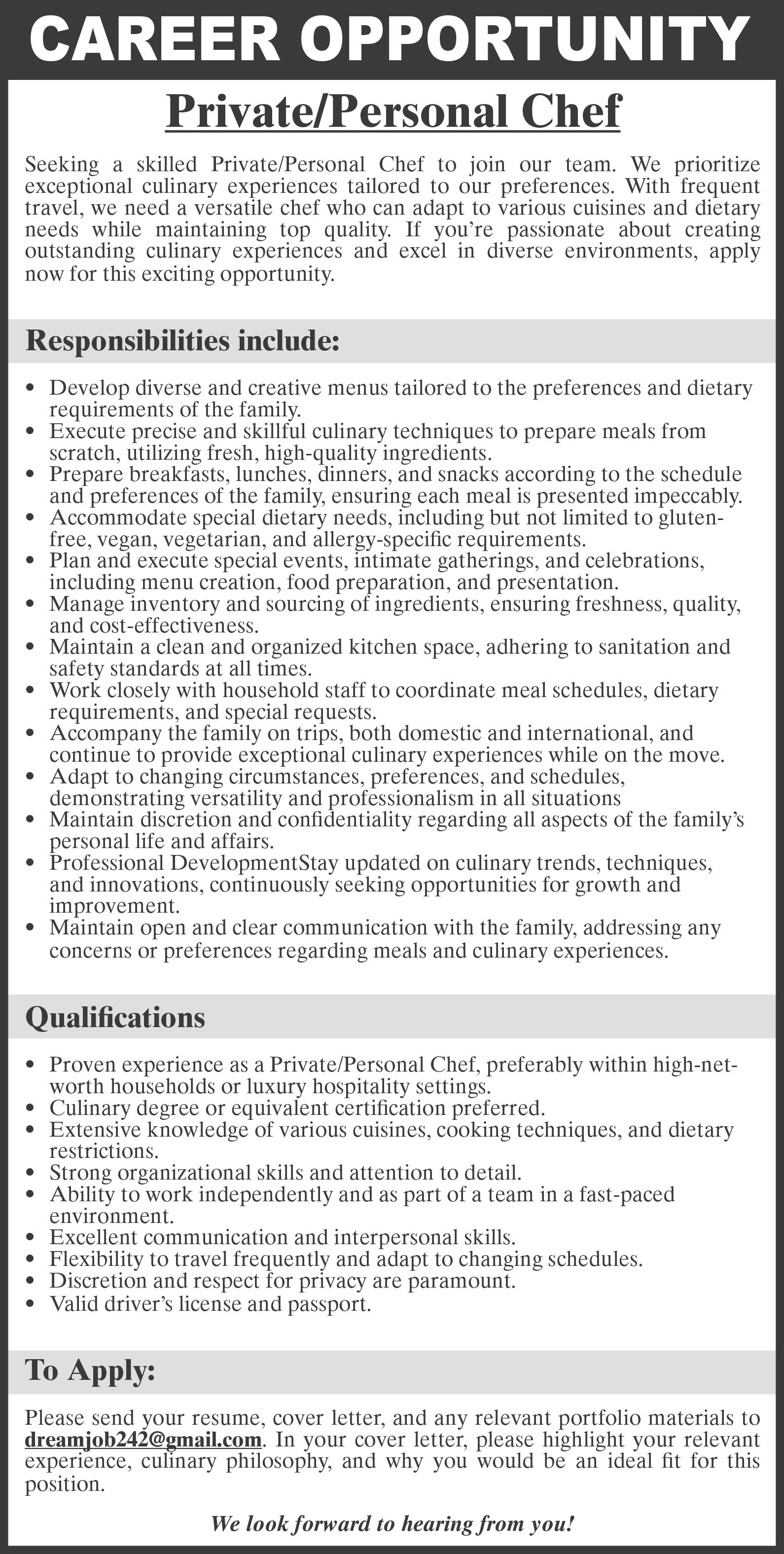




















PRIME Minister Philip “Brave” Davis said the Royal Bahamas Defence Force is deploying significant assets, including surface vessels, aircraft and 120 RBDF personnel, to combat illegal immigration amid Haiti’s deepening crisis and a surge in attempts by undocumented migrants to enter Bahamian waters.
The RBDF has apprehended 247 people in recent weeks, including 50 Haitian migrants about five miles west of Bell Island on Saturday.
Mr Davis said in a statement over the weekend that operations will focus on the northern coast of Haiti, the Old Bahama Channel and the Windward Passage. He said the United States and the United Kingdom will position assets in the region, and intelligence will be shared among Bahamian officials, the US Coast Guard, the Turks and Caicos and the Cuban Border Patrol. The recent escape of more than 4,000 prisoners in Haiti has intensified efforts to secure the country’s border.
SEE PAGE THREE
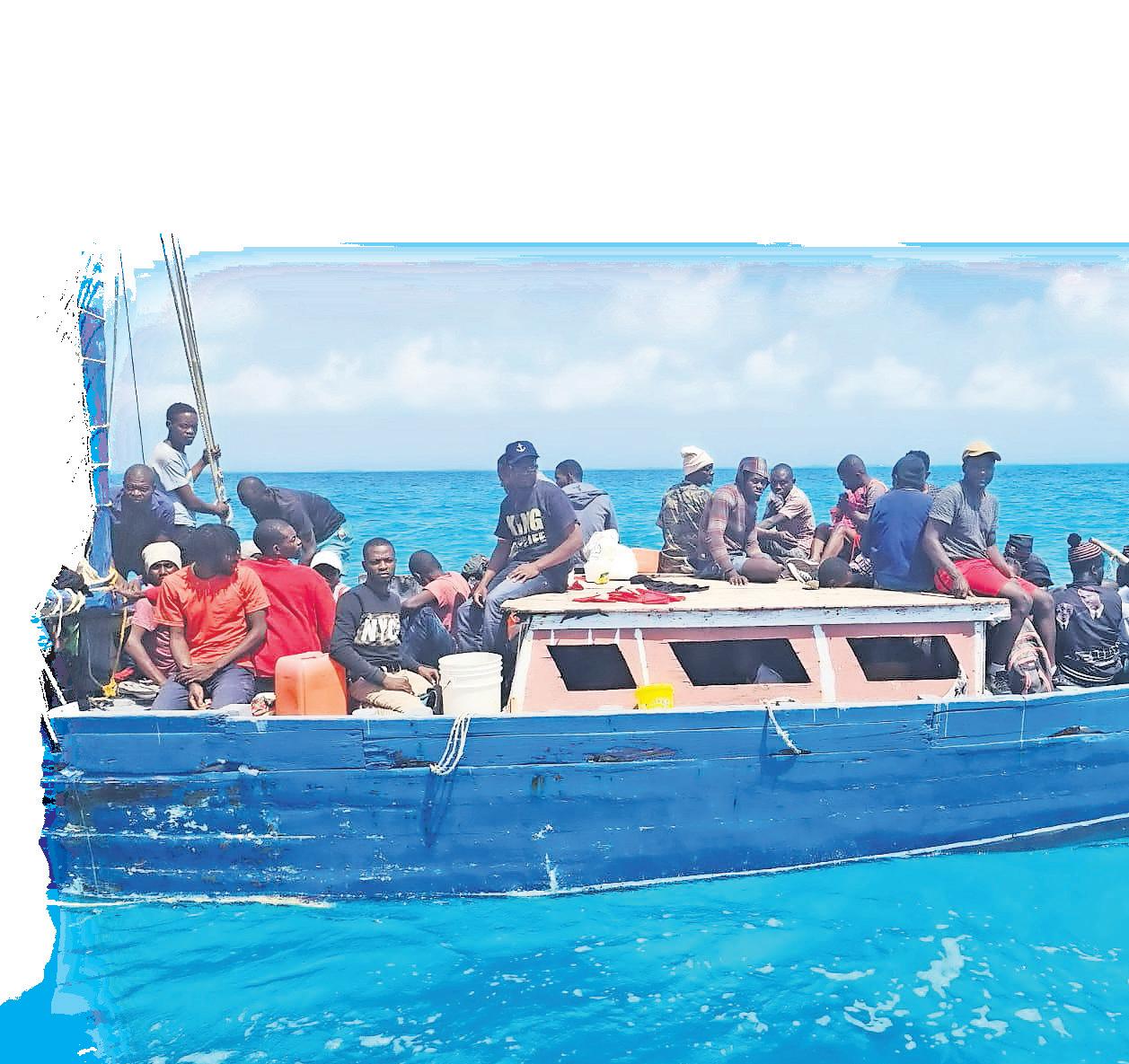
SEE PAGE THREE

 EARYEL BOWLEG Tribune Staff Reporter ebowleg@tribunemedia.net
EARYEL BOWLEG Tribune Staff Reporter ebowleg@tribunemedia.net

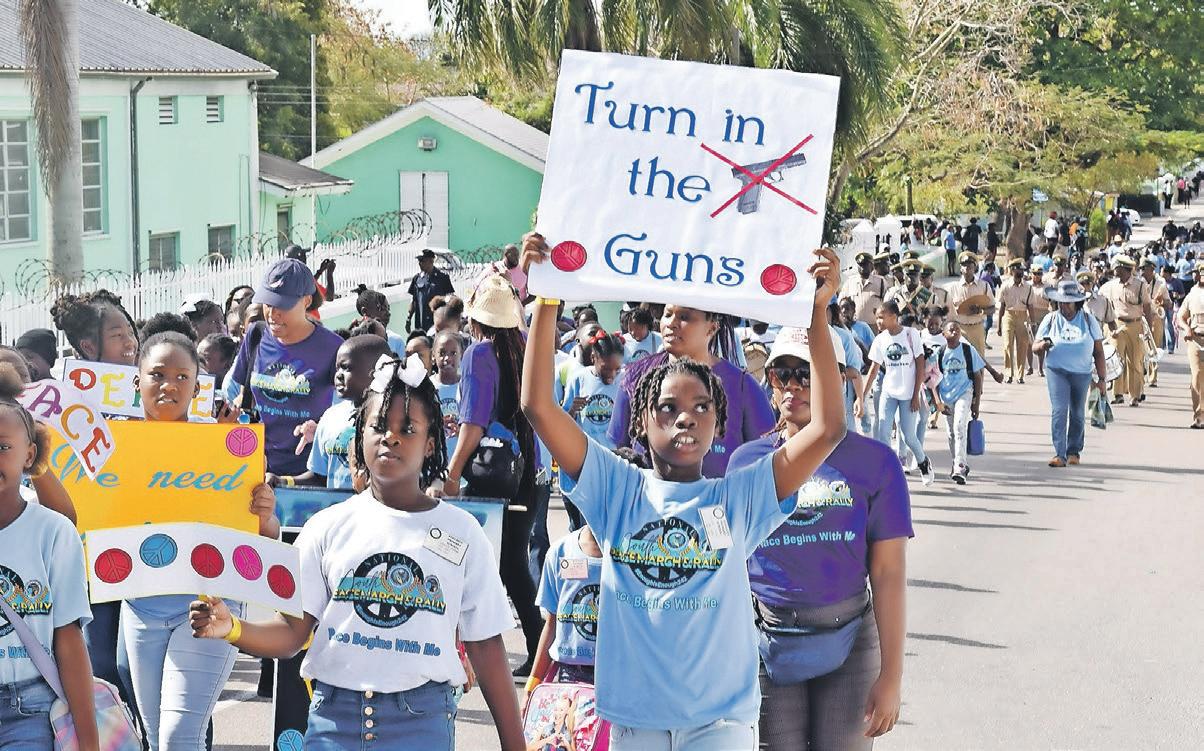

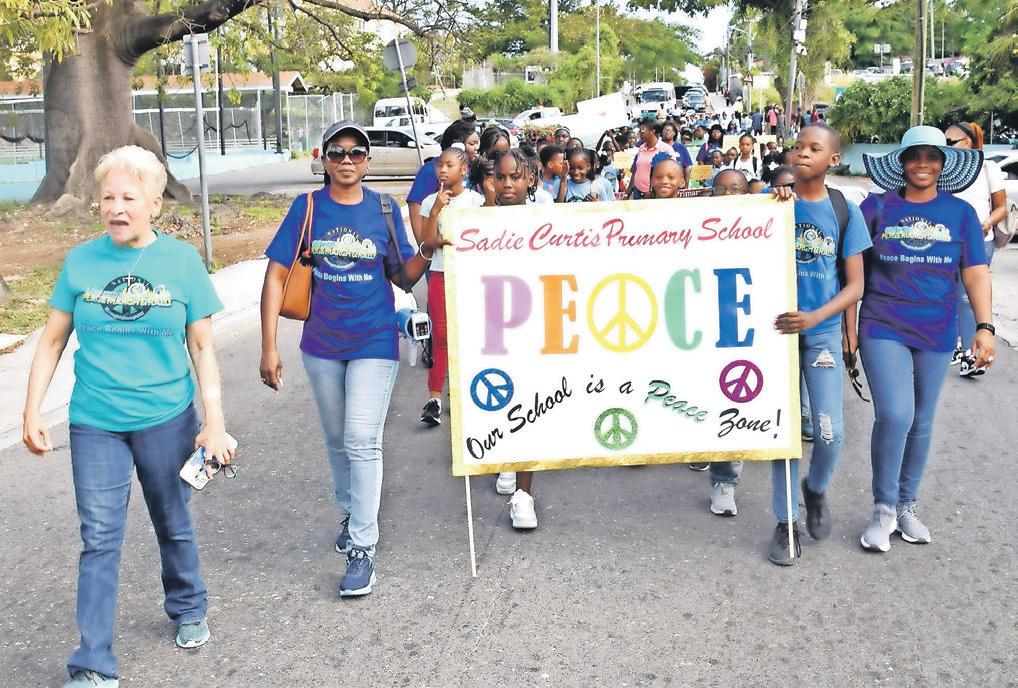
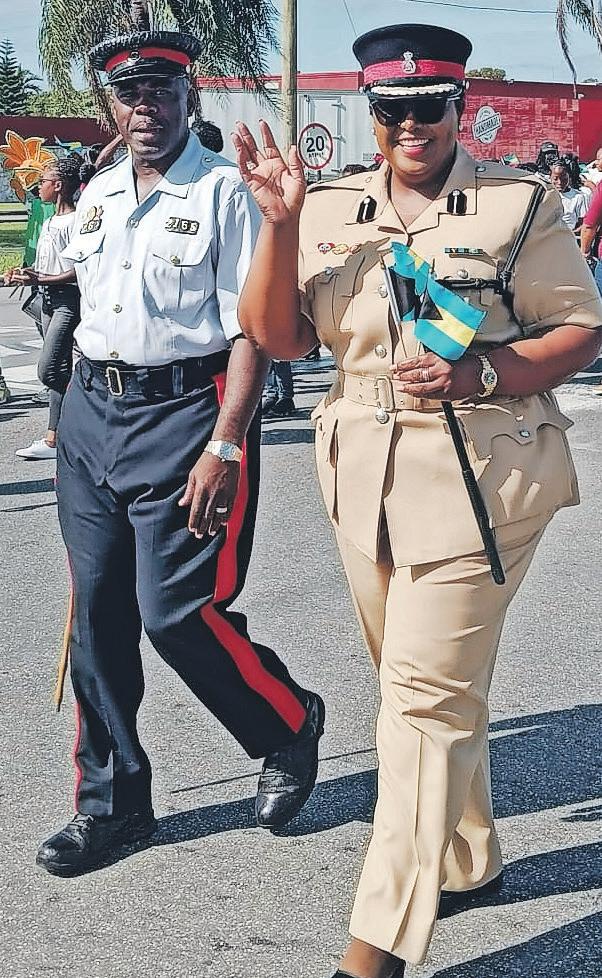
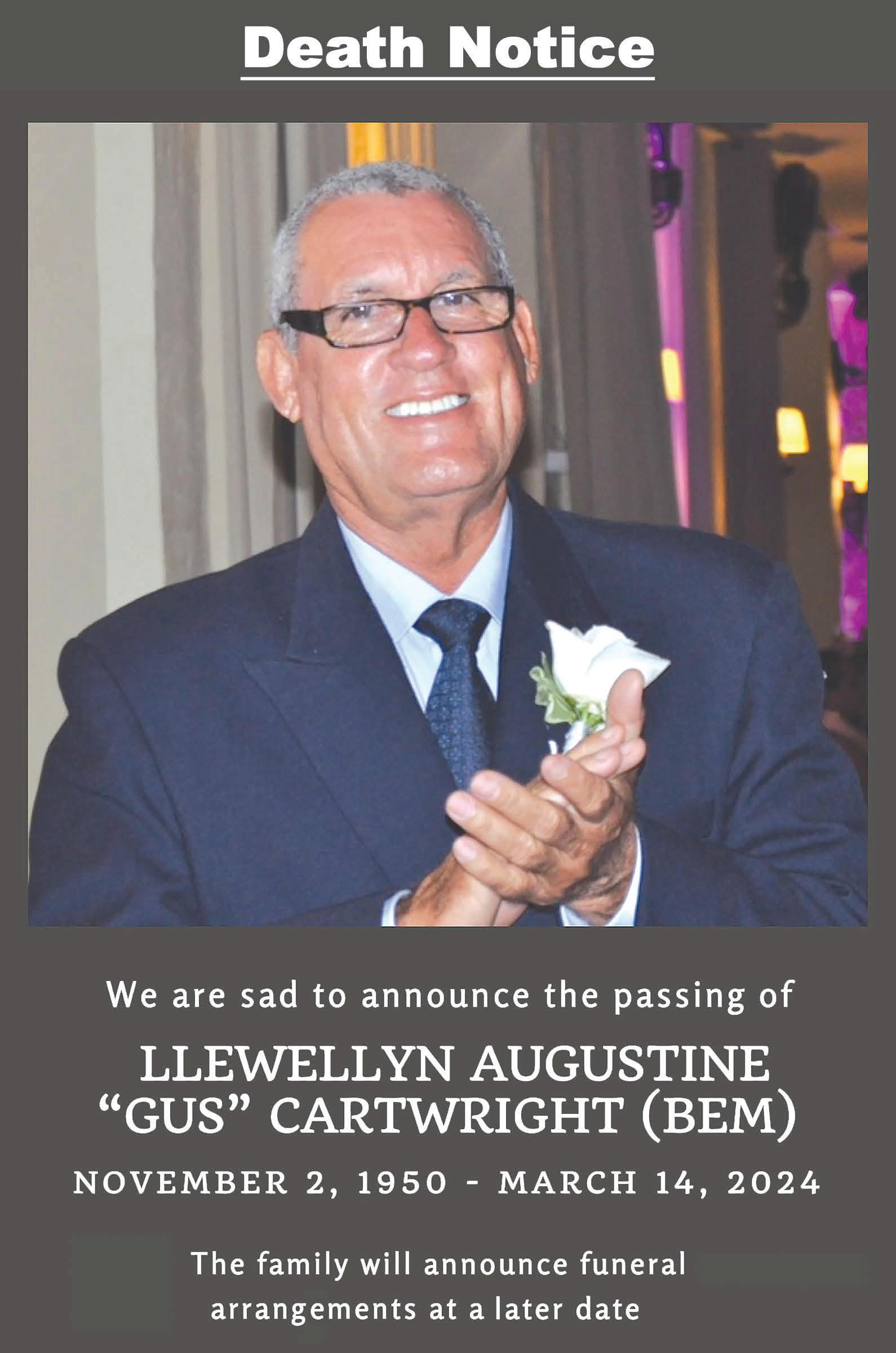
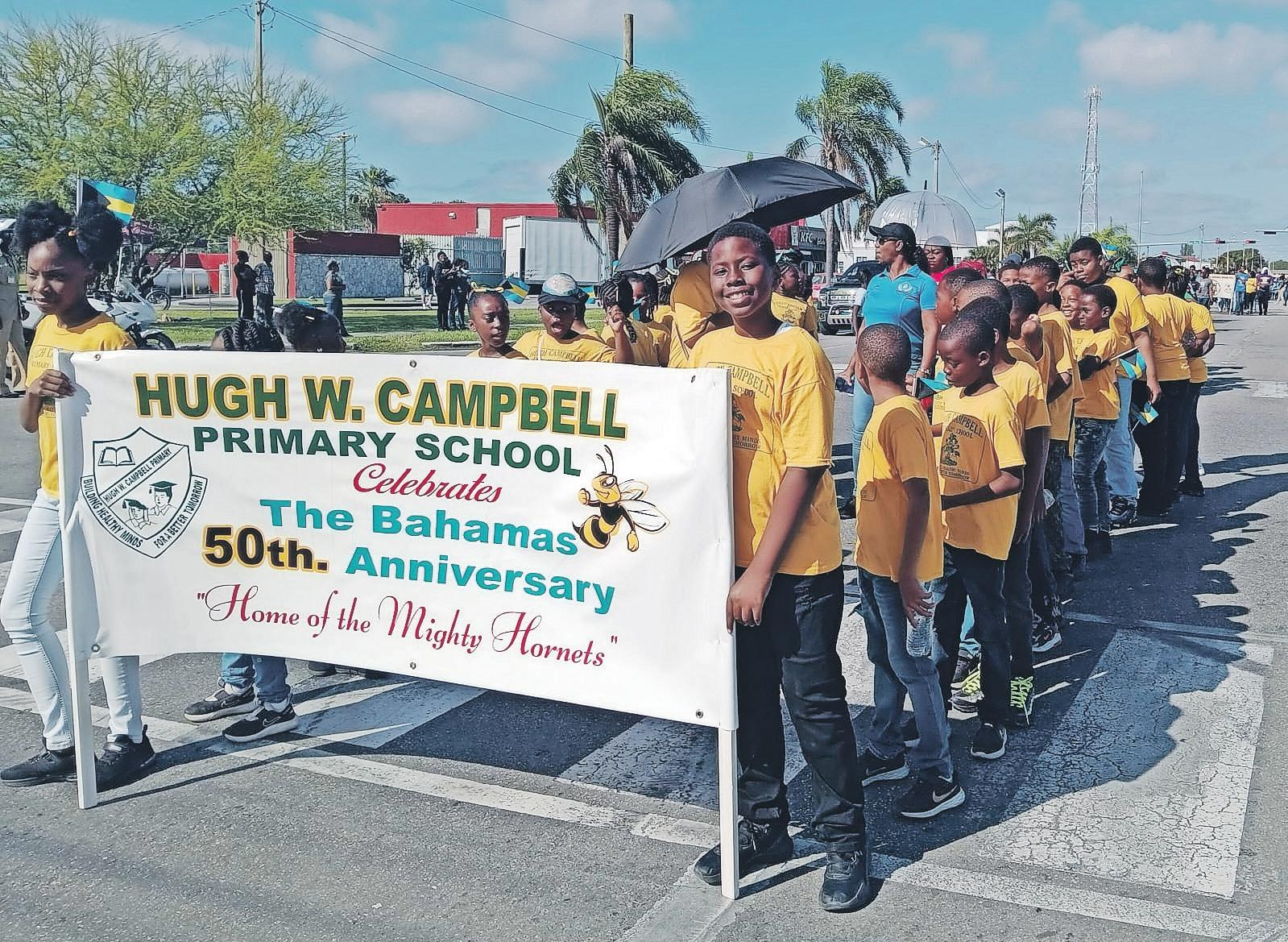


from page one
Mr Davis noted he did not sign an agreement to receive refugees at the 2022 Summit of Americas.
“I continue to believe this is the right decision for our country,” he said.
“We Bahamians are a compassionate people, but we simply cannot absorb additional burdens or security risks at home.”
He noted that CARICOM leaders constructed a framework last week for resolving Haiti’s political impasse.
“The first step in the framework is a transitional council, with members chosen by Haitian stakeholders,” he said. “Haiti’s Prime Minister Ariel Henry has pledged to resign once the council is formed, and the council would appoint an interim Prime Minister.
National Police in creating the conditions necessary to support humanitarian assistance and safe, secure elections.
“As many of you know, Kenya has offered to lead this mission, and a number of other nations have offered to send officers, equipment, and resources. Because stabilising Haiti is critical to preventing a mass migration crisis, and thus critical to our own country’s national security, The Bahamas may send a contingent of officers to participate in maritime operations in support of the multinational force.
‘Because stabilising Haiti is critical to preventing a mass migration crisis, and thus critical to our own country’s national security, The Bahamas may send a contingent of officers to participate in maritime operations in support of the multinational force.’
“As the transitional council works to prepare a path to free and fair elections, a Multinational Security Support Mission, authorised by the United Nations last year, may be formed to reinforce the Haitian
“Some Bahamians will recall that under Prime Minister Ingraham, Bahamian officers participated in a mission to uphold security in Haiti, in 1994. If the multinational force is deployed this year, and if we are able to come to agreement on the parameters of our participation, our Defence Force officers who participate would be restricted to maritime operations, where the RBDF’s experience, expertise and excellence will be a tremendous asset.”
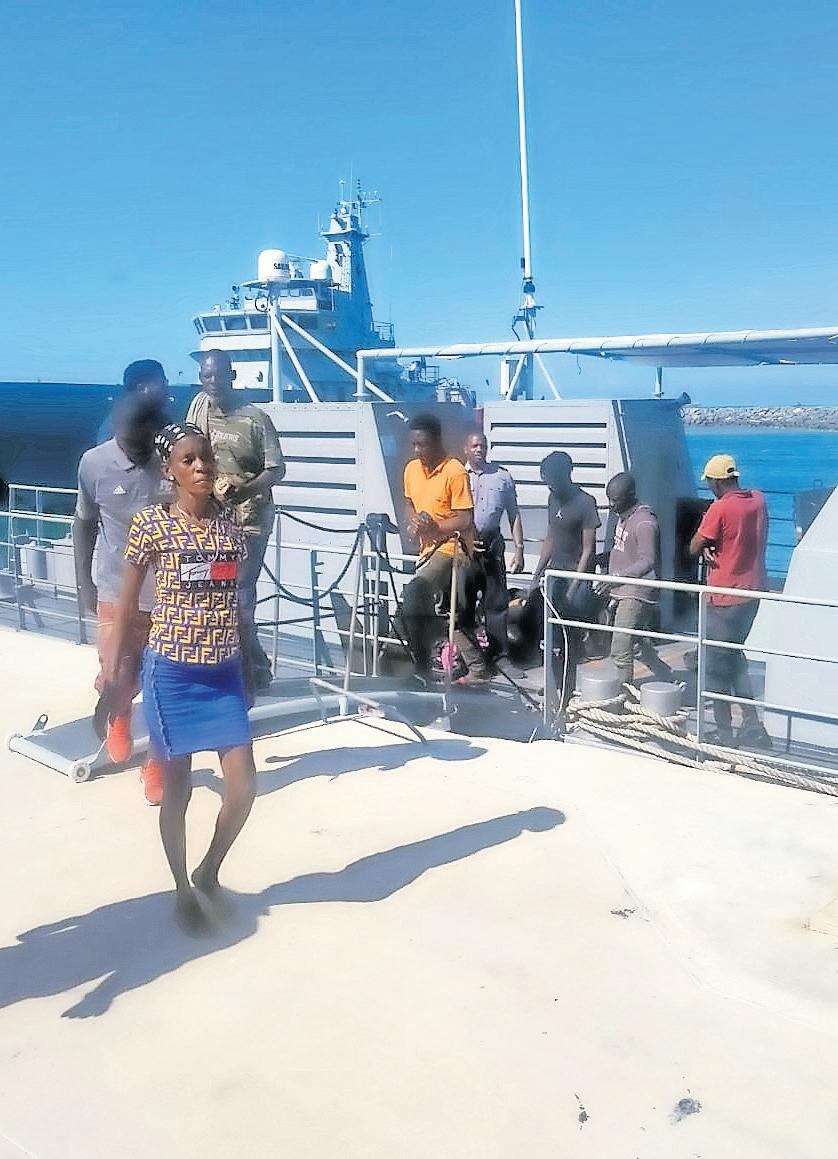
from page one
During an event at Baha
Mar marking the Eugene Dupuch Distinguished Lecture’s 25th anniversary last week, Court of Appeal president Sir Michael Barnett, KC, said jury trials should either be reduced or eliminated.
He and other judges,
including Chief Justice Sir Ian Winder, KC, former Chief Justice Sir Brian Moree, KC, and former Chief Justice Sir Burton Hall, shared a preference for bench trials versus jury trials, citing efficiency, among other things. Sir Brian noted that in countries like Trinidad, accused people have the right to elect a trial by jury or a
trial by a judge –– a possible option here if the government avoids a constitutional referendum on the topic.
Yesterday, National Security Minister Wayne Munroe said a task force is being established to “look at this whole issue of trials” and how to make them more efficient and quicker. He said task force members would include himself,
FIVE members of the executive branch of government are joining Prime Minister Philip “Brave” Davis as part of a delegation visiting Botswana from today until Friday.
Foreign Affairs Minister Fred Mitchell, Minister of Education and Technical and Vocational Training Glenys Hanna-Martin, Minister of Economic Affairs Michael Halkitis, Minister of Youth, Sports and Culture Mario Bowleg and the Parliamentary Secretary of Tourism, Investment and Aviation John Pinder are accompanying Mr Davis.
The Office of the Prime Minister said in a press statement yesterday: “Botswana is widely considered one of Africa’s greatest success stories. Botswana is an upper-middle-income
country with one of the world’s fastest-growing economies and is known globally as a leader in eco-tourism.
“The prime minister and his team seek to reinforce strong diplomatic ties between The Bahamas and Botswana and to explore new educational, economic, and trade opportunities for Bahamians. “Both countries have national development strategies which require significant advances in food security, energy transition, digitalization, climate adaptation, education, and sustainable development. Botswana has had notable achievements in value chain development in tourism and agriculture. It has a longstanding programme which offers local communities the opportunity to
participate meaningfully in tourism development and sustainable resource management. “Both nations are vulnerable to climate change and are working to build alliances internationally to leverage fairer climate finance.”
The visit aims to unlock new economic ventures and educational exchanges and explore avenues for collaborative projects and trade opportunities.
The statement added: “The visit to Botswana reflects the administration’s recognition that small nations can benefit greatly from building meaningful partnerships and that international cooperation will be critical to strengthening and diversifying our country’s economy in the 21st century.”
Sir Ian, representatives from his ministry, the Royal Bahamas Police Force, the Bahamas Department of Corrections and the Bar Association. Participants from the Official Opposition and non-profit groups may also be included. Mr Munroe said the government wants to staff the task force by the end of April.
Prime Minister Philip
“Brave” Davis recently lamented that people’s unwillingness to be jurors impedes the justice system.
“Many Bahamians don’t want to serve,” he said. “We talk about swift justice, but we need to encourage people that when they’re called upon to provide service, to do so as part of their civil duty. But then anytime they see their name, they go
try to make excuses to be excused.”
Mr Davis said solving crimes isn’t the issue, noting someone is arrested or charged in 90 per cent of murder cases. He said the “elephant in the room” for many years is having the necessary court resources.
He said trials used to finish much quicker.
MAN WHO CLAIMED POLICE ABUSE IS ‘FREE TO MAKE A COMPLAINT’By LEANDRA ROLLE Tribune Chief Reporter lrolle@tribunemedia.net
A MAN calling for accountability after police allegedly beat him in custody is “free to make a complaint”, National Security Minister Wayne Munroe said yesterday.
Javis Smith’s armed robbery case was thrown out last month after a Supreme Court judge refused to accept the prosecution’s evidence of his confession to the crime.
Mr Smith, who was arrested in 2018, claimed police beat him with a cutlass on his buttocks, put a fish bag over his head, and poured hot sauce in his eyes so he would confess to armed robbery.
Justice Gregory Hilton ruled that the prosecution
did not fulfil its burden to prove that the confession was obtained willingly and not under duress.
The prosecution later withdrew its charges because the confession was the only evidence in the case. Defence lawyers have for years said that torture for confessions is a human rights problem in The Bahamas.
Mr Smith has said the police should hold the officers who allegedly beat him accountable.
Mr Munroe, however, suggested the police will not take progressive steps to investigate matters even after cases are thrown out because judges do not accept a person’s confession.
“I’ve done a number of cases,” he said. “What judges find in voir dire is
that they are not satisfied beyond doubt that the confession is voluntary or that there are circumstances that may render it unreliable.”
“The Crown has the burden of proof at all things and all that is saying is they’re not satisfied.”
“That shows the protection that people have. Everything is subject to investigation. If he would like to make a complaint, he is free to make a complaint.”
“The consequences may be a little different than he expects.”
The United Nations Working Group on Arbitrary Detention (WGAD) said in its report last year that the country is not doing enough to ensure forced confessions to crimes are not impeding people’s right to a fair trial.
from page one
He said when they arrived in Acklins around 7pm on June 7, 2022, they saw a man in a black hoodie on the tarmac who gave them a satellite phone.
Aristizabal said when he turned off the plane and disembarked, he noticed a white police jeep. He said that a man who was in
the jeep took drugs from the nose of the plane and placed them in a metallic tin. He did not say whether that man was Mr Miller. He said the man in a black hoodie eventually left to get gasoline. He said he was on land for 20 to 30 minutes when a helicopter arrived. He said he tried to leave, but heard two shots from police as he was offloading the drugs.
He said officers signalled they were being arrested, and two men came from the helicopter. He said his belongings and that of his partner were taken. He said police left in a jeep but returned 20 minutes later. He said he and his partner were directed to the helicopter while the drugs in their plane were confiscated. Footage of the drug bust
was shown in court.
When Bjorn Ferguson, Mr Miller’s lawyer, crossexamined him, Aristizabal said he had two police interviews in New Providence.
He said during the first interview on June 8, 2022, he did not give the full story about what happened as advised by his attorney.
He said during the second interview on July 5, 2023, he spoke for the first time
of police involvement in the matter and said he placed contraband in the back seat of a police vehicle.
He said since his time at the Department of Corrections, he has not been visited by a lawyer, but by police officers.
He insisted he was not encouraged to make the claims he did to get a reduced sentence.
However, he claimed
police threatened him not to discuss his statement in court.
He said he told prison officials this, but did not know if the officers who allegedly threatened him were pursued.
Meanwhile, US Coast Guard Lieutenant Commander Travis Rhea testified that he piloted the helicopter on the day of the drug bust.

STRAW Market vendors said trying to embrace credit card machines has had complicated results because of high bank fees and lack of free WiFi.
For older vendors who have worked in the market for decades, learning to use a machine is challenging.
The vendors spoke to
The Tribune last week after Deputy Prime Minister Chester Cooper told reporters that the Ministry of Tourism and the Tourism Development Board encourage them to explore digital payment options and credit cards, modernising their business to benefit from the tourism industry. His comments were in response to concerns about cruise ship staff warning passengers not to carry cash
off ships. Velma Roner said sometimes using credit card machines is beneficial ––but not when dealing with small transactions of $15 or less.
“By the time you take that to the bank,” she said, “they have to take their money off.”
“What are you getting from that? So that little, small thing is not beneficial to you.”
Ms Roner and other vendors said the lack of WiFi in the market has made facilitating credit card payments challenging. She uses data from her phone to provide an internet connection for her machine. She said when the chairman of the Straw Market Authority was first appointed, he said he would introduce free WiFi, but has not done so yet.
“Sometimes tourists try
HOUSING Minister Keith Bell said government’s rent-to-own programme would help people who cannot get a mortgage because they have other debts or cannot pay the downpayment needed to get a loan.
“What it really means is that we find that there are a number of persons who want homes, they have saved that downpayment, but because they have some consumer debt, they’re unable to qualify for a mortgage,” he said.
“Sometimes they may be able to pay a loan, but they don’t have the downpayment. So the idea is to be able to put them in their homes, and their payments will go towards the deposit to bring down their consumer debt.”

He said when people reach a point where they can qualify for a mortgage, officials will “take them into the bank and qualify them”.
“It’s very innovate, it’s very progressive and it’s gonna help thousands of Bahamians,” he said.
He suggested that some homes in the Renaissance at Carmichael housing development will be used in the project.
During his mid-term budget debate last week, Mr Bell said the programme would see the government redevelop abandoned properties and transform them into affordable housing areas.
to log on to get to their bank to see what’s going on and they can’t log on because they don’t have any data or anything like that, so you lose a sale right there,” she said. Teressa Eneas said at least 70 per cent of vendors in the market have machines that accept Visa, Mastercard, American Express, and Apple Pay, and she acknowledged that tourists with credit cards
sometimes spend more than those using just cash. However, some vendors have lost faith in the system because of experience with customers finding ways to get their money back. She said she replaced her previous bank “because the customers made a purchase, and the customers called them and tell them they didn’t make the purchase, so for that reason, I had a loss”.
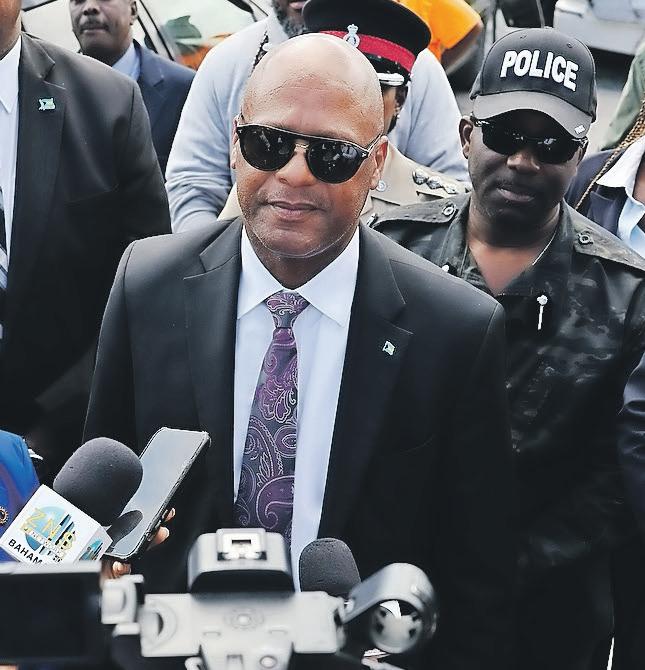

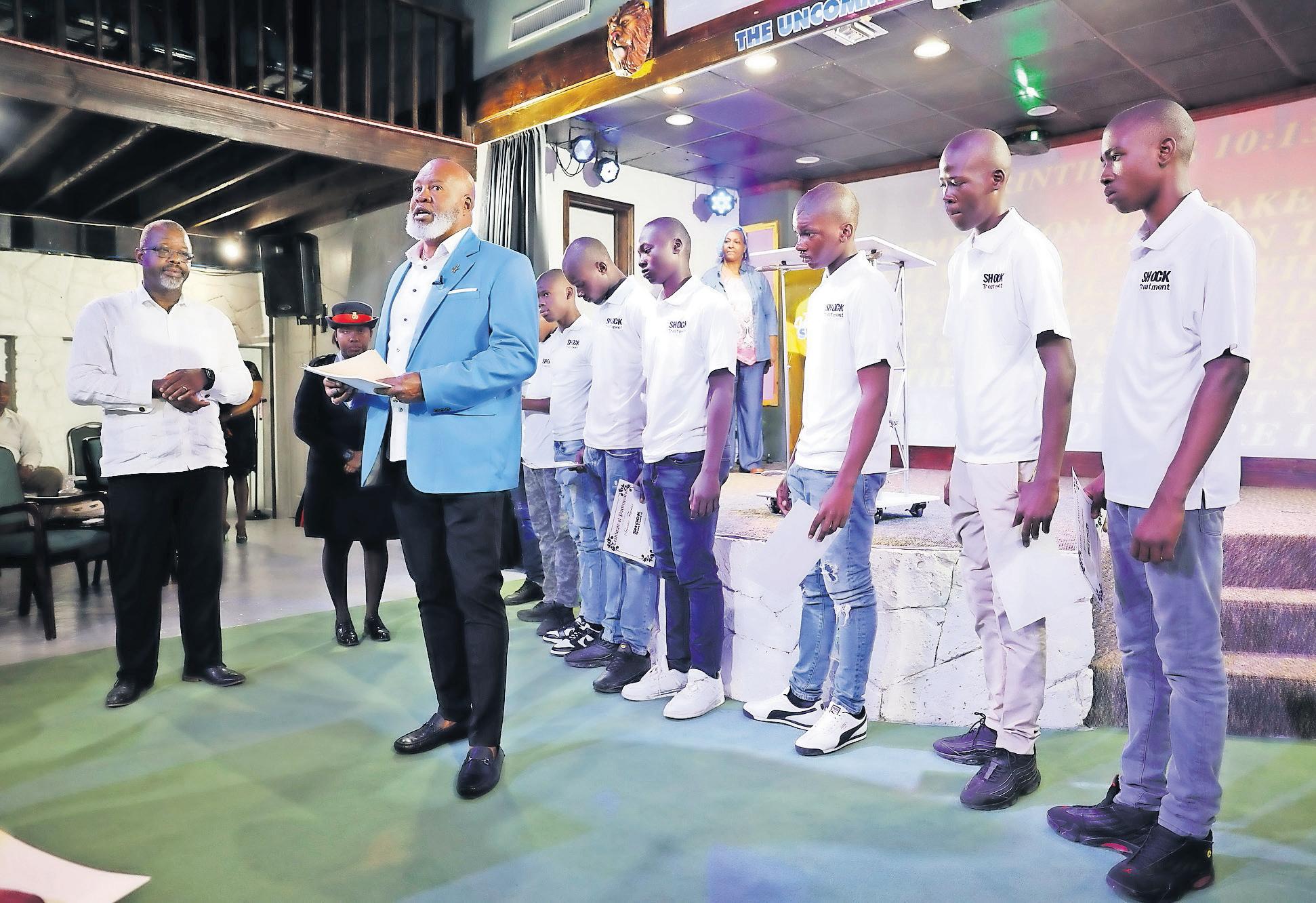
NINE boys were highlighted yesterday for completing government’s controversial Shock Treatment programme, which the Davis administration relaunched in 2021 to target youth with disciplinary issues.
Some boys said the programme was challenging, but effective and helped change their outlook on life.
Among those attending yesterday was Constable Raven Culmer, a former participant in the programme who recalled her positive evolution from a troubled “Bain Town girl”.
She urged the boys to let their mistakes push them to improve rather than hinder them.
Other representatives from the Royal Bahamas Police Force, the Royal Bahamas Defence Force,
and the Bahamas Department of Correctional Services were present at the Hope Centre to share encouraging messages after the boys completed the one-week programme.
National Security Minister Wayne Munroe compared life to a basketball game and urged the boys to make the right choices.
“You got to watch what happens in the prison,” he said. “You got to watch what happens at the police station. You got to go down on the Defence Force base and to watch and see how the men and women who protect the country conduct themselves and carry themselves.”
“The game about to start for y’all. How successful you are in the game will depend on how well you remember the tape, how well you remember your preparation because the game of life is long, and you know if you get blown out
in the first quarter, it’s hard to come back, aye.”
Critics say programmes like Shock Treatment are cruel and ineffective at deterring crime. Some say televising the programme is humiliating.
Dr Carlos Reid, a Ministry of National Security crime consultant, said many do not understand the purpose of the television programme.
“Thousands of persons won’t ever get to the doors of Shock Treatment,” he told reporters. “Our job is to use what we put on television as a tool to be able to help parents to help their kids.”
“So, the good side of Shock Treatment, you don’t get to see much of that on television. You get to see the breaking part because parents have told us that they had some kids who were disobedient. They told them to watch Shock Treatment and after that, their lives turn around.”
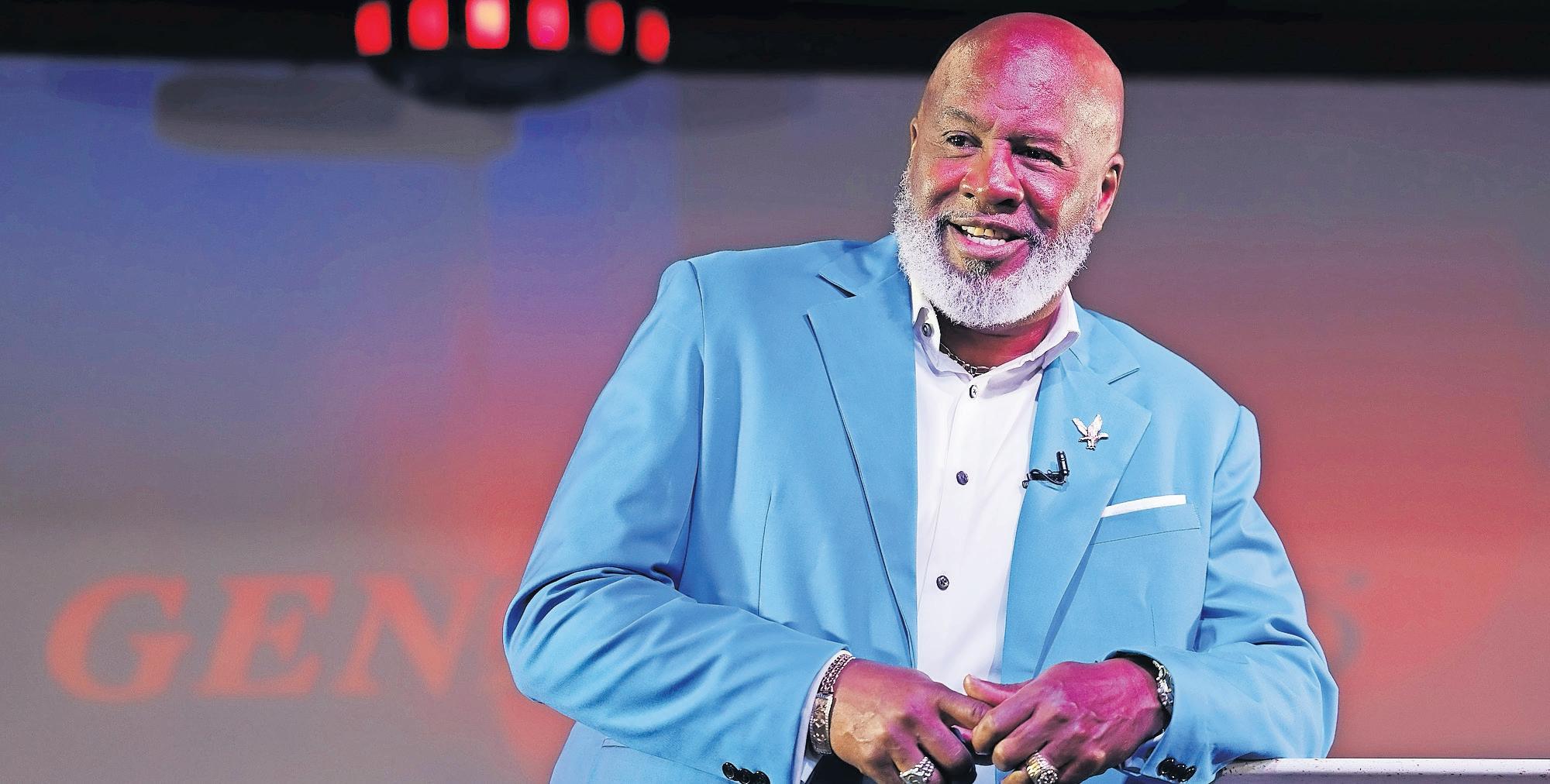
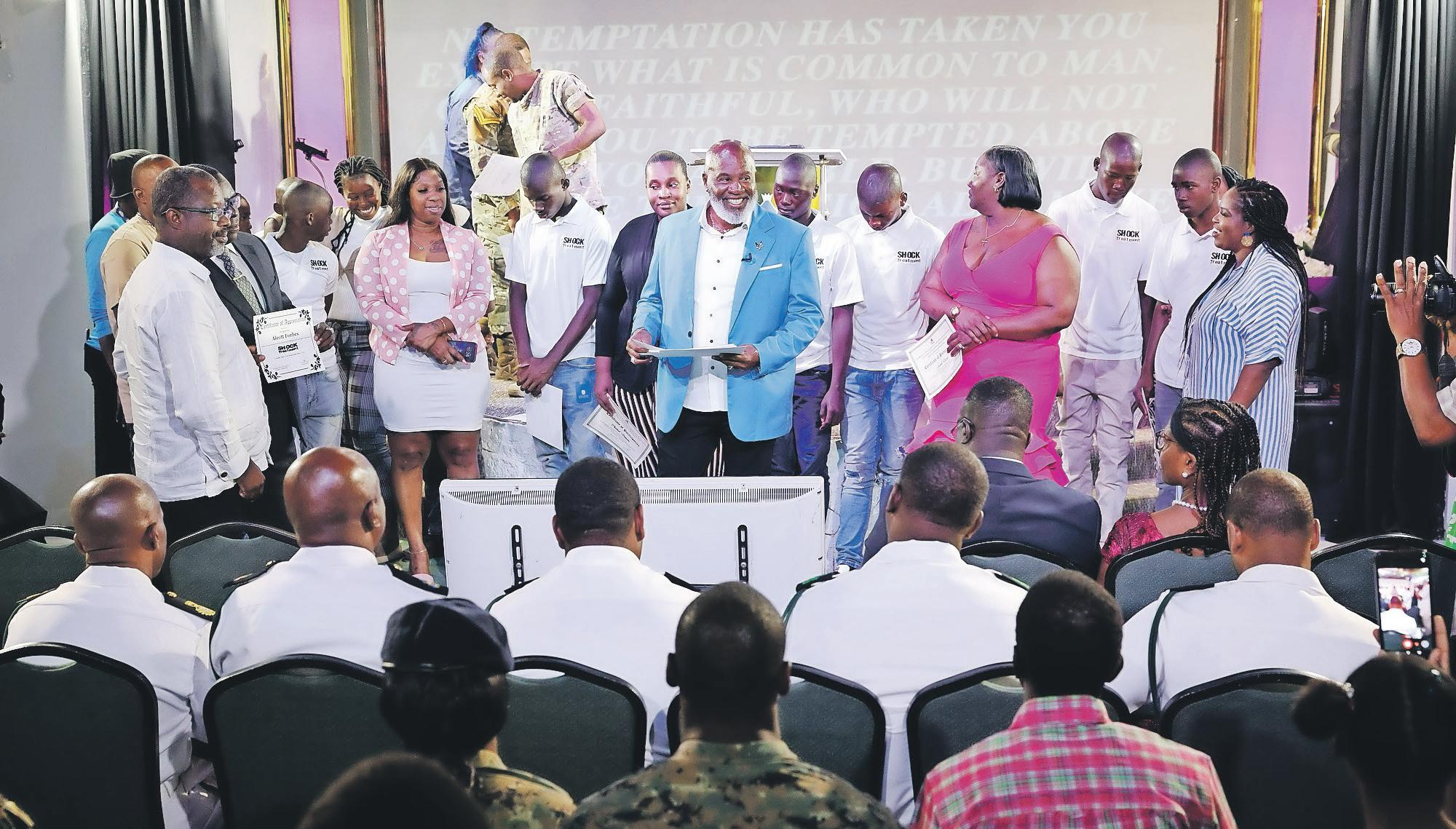
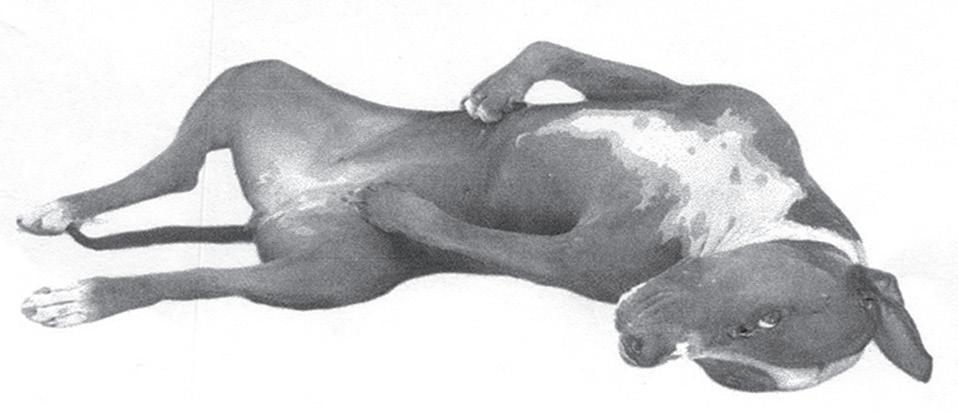
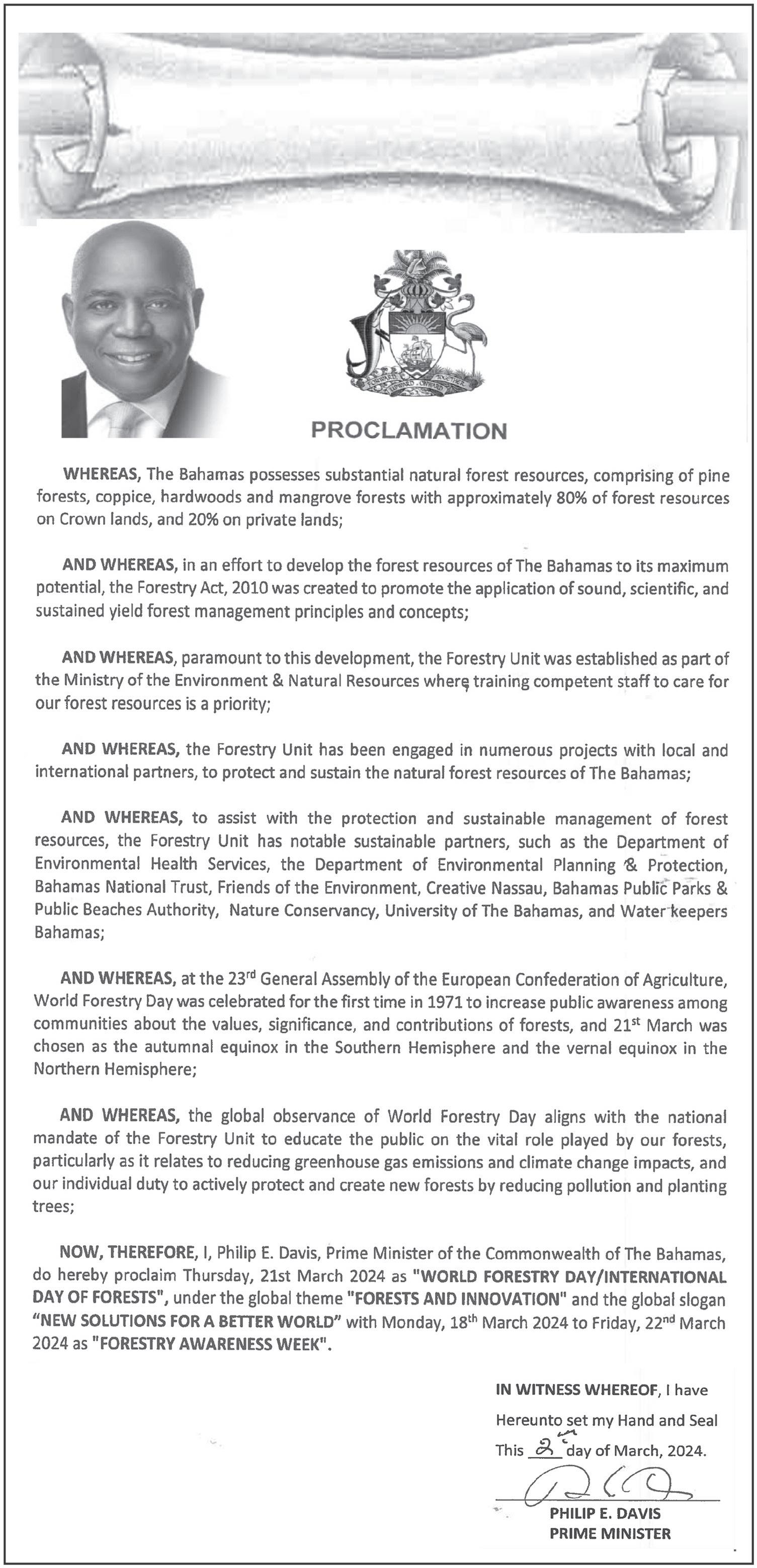
“Being
LEON E. H. DUPUCH,
Publisher/Editor 1903-1914
SIR ETIENNE DUPUCH, Kt., O.B.E., K.M., K.C.S.G., (Hon.) LL.D., D.Litt .
Publisher/Editor 1919-1972
Contributing Editor 1972-1991
EILEEN DUPUCH CARRON, C.M.G., M.S., B.A., LL.B.
Publisher/Editor 1972-
Published daily Monday to Friday
News & General Information
Advertising Manager
Circulation Department
Nassau fax
Freeport, Grand Bahama
Freeport fax


(242) 322-1986
(242) 502-2394
(242) 502-2386
(242) 328-2398
(242)-352-6608
(242) 352-9348
TWO different paths towards justice strike very different notes in today’s Tribune
First of all, there is a discussion about the nature – and future – of jury trials.
The matter arose from a law lecture event last week, at which some of the challenges of jury trials were raised.
This has been discussed before –many times – with Prime Minister Philip “Brave” Davis recently complaining about people’s unwillingness to become jurors.
That was amplified during the discussion on Thursday at Baha Mar, with it being described as “like pulling teeth” to get jurors to sit for a case.
Of course, a trial by jury is a fundamental – and a constitutional – right. If any one of us is called to face a court, it is our right under the constitution to be tried by a jury of our peers, and not just by a judge.
That is important for many reasons – and also an important check to ensure that every one of us is ultimately treated the same before a court of law. No matter how influential the person, they can be held to account by a panel of ordinary Bahamians, who weigh the evidence before them.
Are there complex cases that can be difficult for juries to weigh? Absolutely. Some of those can be challenging for some judges to weigh too.
It could be a matter of concern too – suppose a sitting government MP or minister of an administration is called before a court and elects to be tried by judges rather than a jury only to be cleared, will the public be confident the verdict was reached without influence?
There is significant energy being directed to the discussion though –which brings us to the second story today.
Last month, a man had his armed robbery case thrown out after his confession was not accepted by the judge, who said the prosecution had not proven it was obtained willingly and not under duress.
The confession was the only evidence, and the prosecution dropped the case.
The man in the case, Javis Smith, claimed that in 2018 when he was arrested, police beat him with a cutlass on his buttocks, put a fish bag over his head, and poured hot sauce in his eyes until he confessed.
The National Security Minister, Wayne Munroe, in response to that says that the man is “free to make a complaint”.
Contrasting discussions about possible constitutional changes with the lack of energy to pursue allegations of beating and torture by police is striking.
Should the man make a complaint, six years on from the event, what action will be taken?
It should be noted that when three people made allegations of being tortured by police in Eleuthera – with strikingly similar methods of being beaten, a fish bag put over their heads and hot sauce poured into their eyes, along with being waterboarded – the police let time run out on the complaint.
A full year passed after their complaint, and the police ultimately told the they had run out of time for their complaint to be dealt with.
The police force should be pro-active in dealing with allegations of beating and torture. These are, after all, crimes themselves, and a force intent on keeping its good name should be as keen to investigate these alleged crimes as any others.
Is there a path toward justice for people in such cases? Or is the only change on the table the prospect of removing even a jury trial in their future?
As it happens, the politicising of referendums in our country that has seen successive votes fail at the polls may well be the death knell for any such vote to change the constitution on jury trials, the attorney general saying he does not foresee such an issue going to the voters.
But if we do take steps down the path, they should be cautious ones, with the goal of preserving people’s rights as high on the agenda as any prospect of increased efficiency.
Parents and children
EDITOR, The Tribune.
I DO not claim to be a modern day sage, a living oracle, or an expert on anything, but if you are having problems with your child or children, then the problem is with you and not the child, because as a parent you have failed that child. That’s my view. And so, if you are at wits end, or are wondering how to turn some troubling situation around, then read on.
One mistake some young parents make is that they try to be friends with their children as apposed to being the parent they ought to be. Quick story. While growing up in Cat Island decades ago, it was standard practice for my siblings and I to repeat the Lord’s prayer in unison at bedtime, and then we would take turns wishing our parents who were in an a joining room “goodnight”. They in turn would respond with a “goodnight”, and the house would become quiet, as sleep overpowered us. The moral of the story is that we should teach our children the virtue of prayer from an early age.
Secondly, do not let your child tell you, or do not
ask them what they want to eat or wear. Give them what you have or what you can afford, and let them be satisfied. By so doing, you would be teaching them important attributes like satisfaction and contentment unknowingly to them.
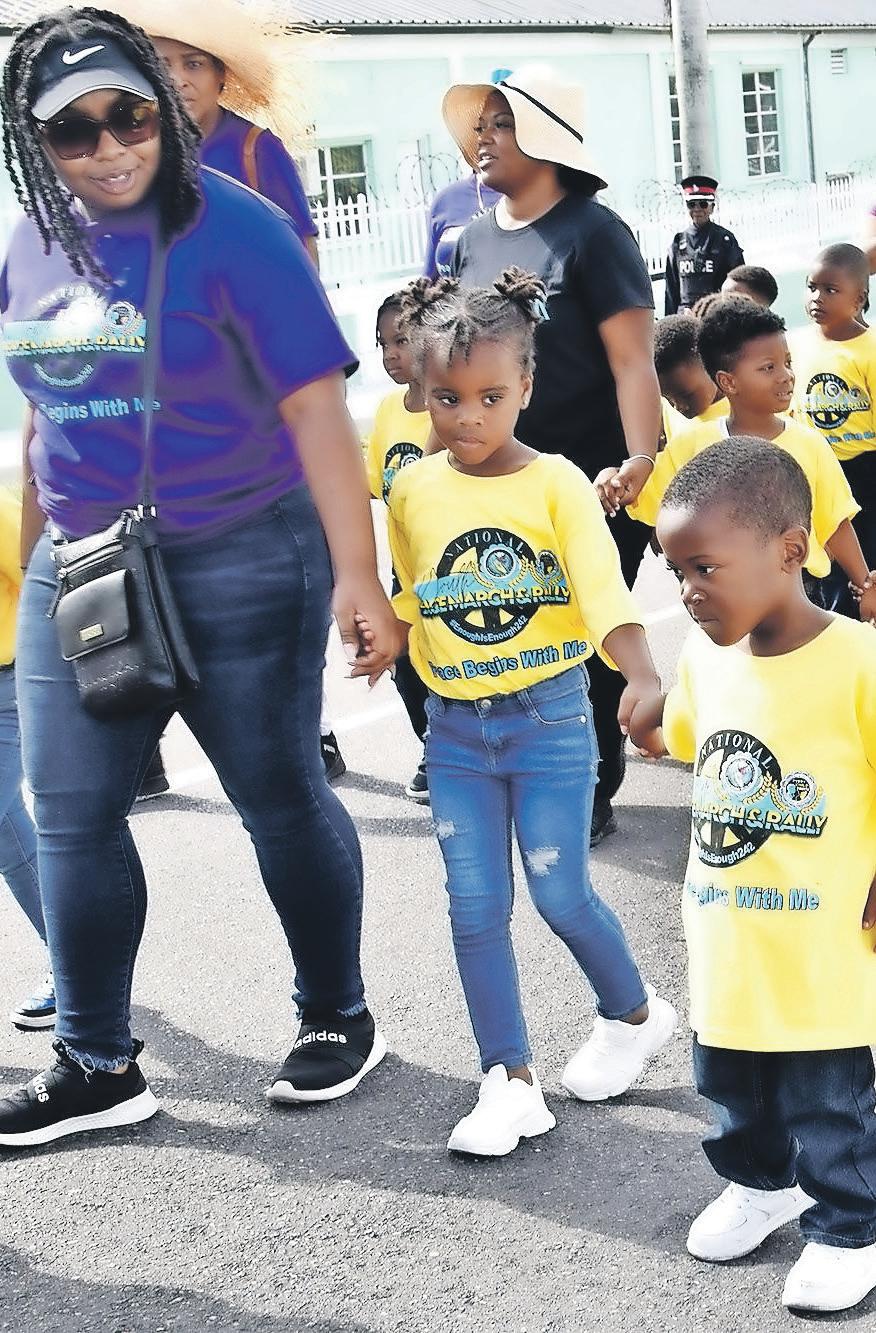
have surrendered their parental authority and seemingly adopted a spirit of submission in pandering to their children. Appeasement does not work. You set the boundaries. Be fair, but firm. “Oh! but times have changed, and these children have minds of their own,” one might say. Such conveniently manufactured excuses fall flat on their faces. May I refer you to Proverbs 22:6. Nothing about that principle has changed! As a seventy-one-yearold grandfather, now in my grey hairs, I have grown up four boys (now men) the youngest of which is 36, (just in case you are wondering). While you might consider that nothing to write home about, I believe that positivity is compounded by sharing. This reminds me of an old familiar cliché which says “bend the tree while it’s young”. We are engaged in the struggle of our time; it’s a struggle of life and death. It shall be life. I am a prisoner of hope!
EDITOR, The Tribune.
JOINING the voices of non-governmental organisations, feminist movements, and activists all over the world, Equality Bahamas calls for an immediate ceasefire and an end to the occupation of Palestine by Israel. The genocide in Gaza is not an isolated event which can be ignored by black people, Bahamian people, Caribbean people, or people of any other identities that have been colonised and systemically oppressed. Equality Bahamas condemns the ongoing occupation, colonisation, and genocide taking place in Palestine.
Palestine was colonised by the British in 1920 and, in 1948, the land was “given” to the Jewish people — stolen from indigenous Palestinians —for the creation of Israel. More than 85 percent of historic Palestine is now occupied and under Israeli military control.
Palestine, which continues to shrink by the day, has had over 700 checkpoints enforced for Palestinians, Jewish-only road systems, and ongoing restrictions of water and electricity. In addition, Palestinians are geographically categorised into five groups — West Bank, Gaza, East Jerusalem, “Israeli” territories, and those in exile, with each group having varying levels of access to human rights.
In the most recent escalation of violence since October 7, 2023, more than 31,000 Palestinians have been killed, and 46,000 have been injured by Israeli forces. There are now more than six million Palestinian refugees worldwide, many of whom are not allowed to return to Palestine.
The military attacks on civilian populations have disproportionately affected women and children who make up 70 percent of those killed. Hospitals are being targeted by the
Israeli military, where women are undergoing childbirth without access to clean water, Cesarean sections are being performed without anesthesia and neonatal units are without electricity. Reproductive and sexual health services and menstrual products are no longer available in Gaza.
Equality Bahamas calls its supporters to recognise what is happening now in Gaza and the ongoing colonisation in all of Palestine.
“We know displacement. We know separation from our people and our land. We know the loss of histories, culture, institutions, and social structures. We know separation from our resources as they are plundered,” said Alicia Wallace, director of Equality Bahamas. “We know the indifference of people and institutions in positions of power. We, however, know just as well, the power of solidarity that crosses borders and languages. We know the necessity of banding together, recognizing that our struggles are connected, as is our liberation.”
“We have seen the denial of healthcare to women.
We have seen cruelty against children. We have seen the targeting of activists and journalists. We have seen arbitrary detention and denial of justice. We have seen places of safety, known for medical care, education, and prayer, targeted and destroyed to communicate to us that we are not protected by any imagined mutual respect for what they symbolise or provide,” Ms Wallace said.
“We have been trapped. We have run with no way out. We have reasoned, cried, and screamed, hid, fought, and dared, protected, mourned, and rallied. We know loss. We know death. We know exhaustion. We, however, know just as
well, the power of resistance that rises up from the ground beneath our feet, beats within our hearts, and courses through our veins. We know the necessity of resistance—refusing to back down, disobeying, and claiming our inherent power.”
There is no justification for the denial of human rights and systematic killing of Palestinian people.
We mourn the loss of all Palestinian lives. We call for an immediate ceasefire. We acknowledge the work of the activists and journalists on the ground, sharing information and calling for global action. We recognise the resilience of the Palestinian people over the past decade, and we acknowledge the injustice embedded in the concept of resilience.
We call for the mobilisation of all people who know and share in the struggle against colonialism, racism, capitalism, and the dehumanisation of people, and for collective freedom. We call on people with privilege and power to break their silence, inhabit the discomfort of disturbing and opposing their peers, and make financial contributions to sustain life and end the genocide in Palestine.
Today, we call on the government of The Bahamas to clearly, unequivocally state its call for a ceasefire. We call on the general public to learn about what is happening in Palestine, read the statement by the CEDAW Committee (tiny.cc/cedawpalestine), sign the call for a ceasefire, participate in the Boycott, Divestment, Sanctions (BDS) movement, and share the posts made by Palestinian people and pro-Palestine organizations on the daily reality of Palestinians and the actions required of others. We call for unity in the call for a ceasefire now.
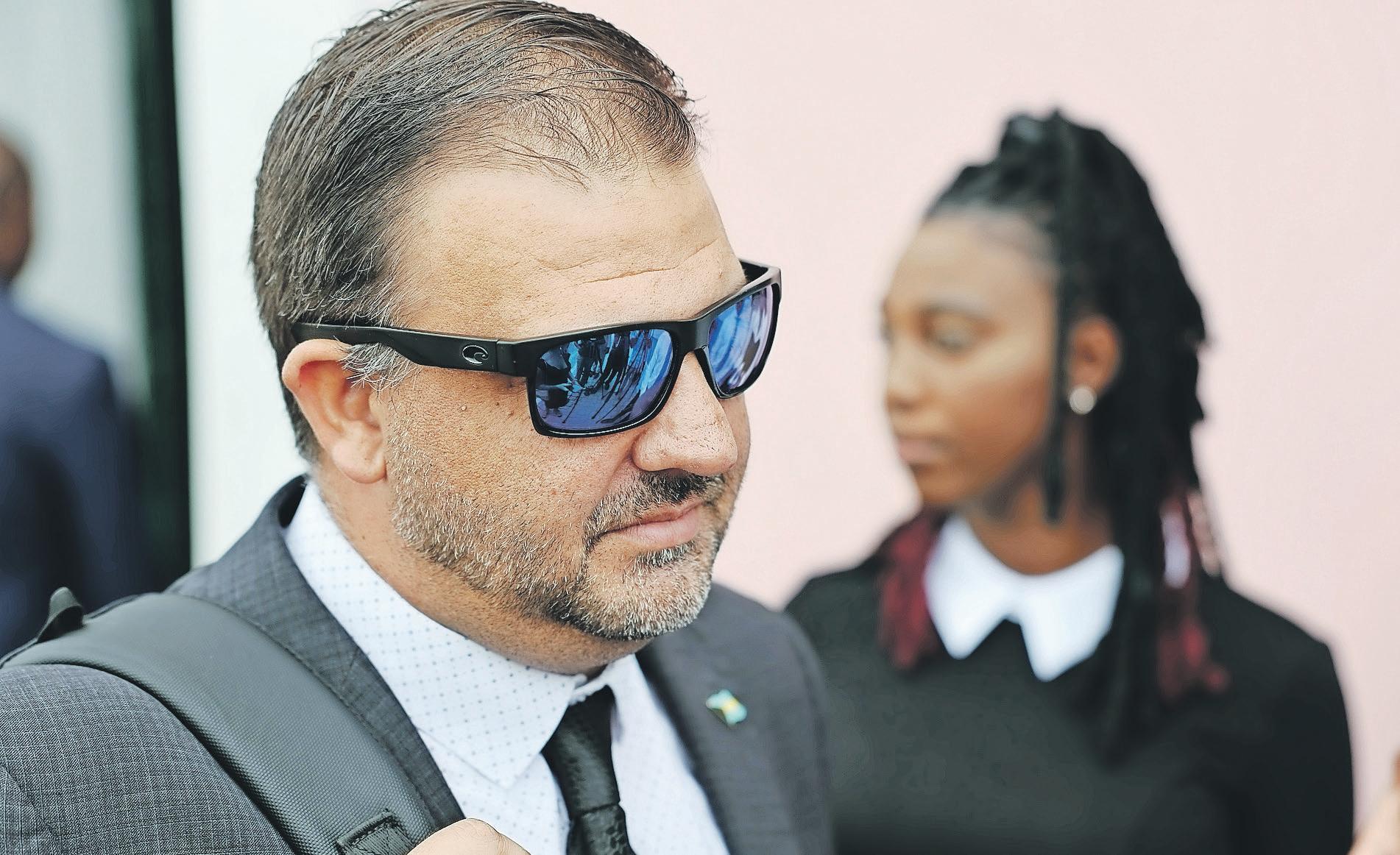
ARTIFICIAL Intelligence (AI) will be a tool government plans to use in the future, according to Parliamentary Secretary of Economic Affairs Wayde Watson, who teased an app that is in development currently that utilises AI.
Mr Watson delivered the keynote address at a ceremony celebrating World Consumer Rights Day, using the opportunity to speak about the advantages of AI, particularly its advantages to consumers, listing industries such as medicine, transportation, scientific research, and finance, adding that AI technology can help towards the world’s most pressing challenges.
“By developing artificial intelligence-driven solutions, we can improve our health care, reduce poverty, combat climate change and mitigate crime-related incidences,” Mr Watson said.
While he spoke positively about the dormant potential of AI in making life easier, more efficient, and enjoyable in “countless ways”, he also issued a caution to his audience – made up by many schoolchildren attending the World Consumer Rights Day ceremony. “As artificial intelligence becomes more sophisticated, it is essential we consider its ethical implications. In other words, AI can be both good and bad. Therefore, we must ensure that as consumers, we use AI in a good way and not so much an evil way. And as AI continues to develop and mature, we can expect to see even more groundbreaking applications emerge in years to come.” Mr Watson said he expects AI to have a particular impact in the consumer sector, mentioning that AI-powered technology has the potential to personalise shopping
experiences by way of AIpowered recommendation engines helping consumers find products and services tailored to their needs and preferences.
He spoke about AI’s ability to improve customer service and satisfaction while namedropping Apple’s virtual assistant Siri and ChatGPT which both utilise AI to solve user questions.
He again raised concerns about using AI considering that artificial intelligence is still early in its global development.
“It is vital that we must move forward to ensure that artificial intelligence is fair and unbiased and that they do not discriminate against certain products or people. It is important to protect the consumer’s privacy, in other words, don’t use artificial intelligence to probe on others privacy. We must be fair and responsible. It is crucial that we prioritise areas of methods, our digital
fairness, protections from misinformation and transparency,” the economic affairs parliamentary secretary said. While the common thought is that AI is expected to make life easier, it may also threaten job security in the region, with the Inter-American Development Bank (IDB) estimating that job automation rates in the region could reach 36-43 per cent by 2030, according to an article by United Nations Development Programme (UNDP) Regional Director for Latin America and the Caribbean (LAC) Michelle Muschet and UNDP Chief Digital Officer Robert Opp. The article also revealed that, according to data, “the uptake of AI in industries in LAC shows that our region is already lagging behind global adoption rates” and recommended that the region “must continue to invest in STEM education in schools while preparing its workforce”.
 By LYNAIRE MUNNINGS Tribune Staff Reporter lmunnings@tribunemedia.net
By LYNAIRE MUNNINGS Tribune Staff Reporter lmunnings@tribunemedia.net
WORKS Minister Clay Sweeting gave an update on the country’s road repairs with 65 miles of arterial and community roads to be completed across New Providence.
To date road repairs in 14 areas of New Providence have been completed, with repairs on Bellot Road and Christie Street currently ongoing.
During the weekly press briefings at the Office of the Prime Minister, Mr Sweeting noted his ministry’s commitment to ensuring that the infrastructure of the country is up-to-par with modern-day amenities.
“In the month of January paving has been completed on Yamacraw Shores, East Street South, between Cordeaux and Palm Tree Avenue, an unnamed road
off Abundant Life Road, Bank Lane and Jubilee Gardens,” Mr Sweeting said.
“In February paving works were carried out in Kennedy Subdivision, Forg Avenue, Philox Court, Zinna Street, Pine Forest, Vernon Street, Collies Avenue, Carmichael Road, Ramsey Road to Bacardi Road, Cowpen Road, 1000 feet west of Faith Avenue Junction and Bellot Road from McKinney to Sir Milo Butler.”
He noted that the cost has not increased and total funding remains at $98,210,000, which is inclusive of road repairs, sidewalk construction and drainage repairs in New Providence and the Family Islands.
Drainage works are in progress for areas such as Dowdeswell Street, Christie Street, and Carmichael Road West, according to Minister Sweeting.
POLICE in Bimini are questioning a 25-year-old man in connection with an alleged sexual assault of a 13-year-old girl. The incident occurred between February and March 2024. Meanwhile, police in New Providence reported a 25-year-old man was hospitalized on March 14th after he was assaulted by another male in the Bain Town community. Reports revealed that shortly after 9pm the victim was near a bar on West Street when he was approached by an unidentified male who struck him in the head with an unknown object before fleeing the area. The victim sustained
serious head injuries and is currently in serious condition at the hospital.
In Grand Bahama, officers from the Royal Bahamas Police Force and Bahamas Department of Immigration arrested six illegal immigrants on March 14th.
Preliminary reports stated that around 10.45pm police and immigration officers arrived near Old Bahama Bay, where they searched nearby bushes and discovered three undocumented Haitians and three undocumented Brazilians. The illegal immigrants were detained by officers from the Bahamas Department of Immigration.

On Saturday, March 23, 2024, Temple Christian School will hold
Entrance Examination for students entering grades 7, 8, 9 and 10.
TIME: 9:00 a.m. to 12:00 p.m.
LOCATION: High School Campus, Shirley Street
Application forms are available at the High School Office and should be completed and returned to the school by Friday, March 22, 2024. The application fee is twenty-five dollars ($25). For further information, please call telephone number: 394-4481/394-4484.
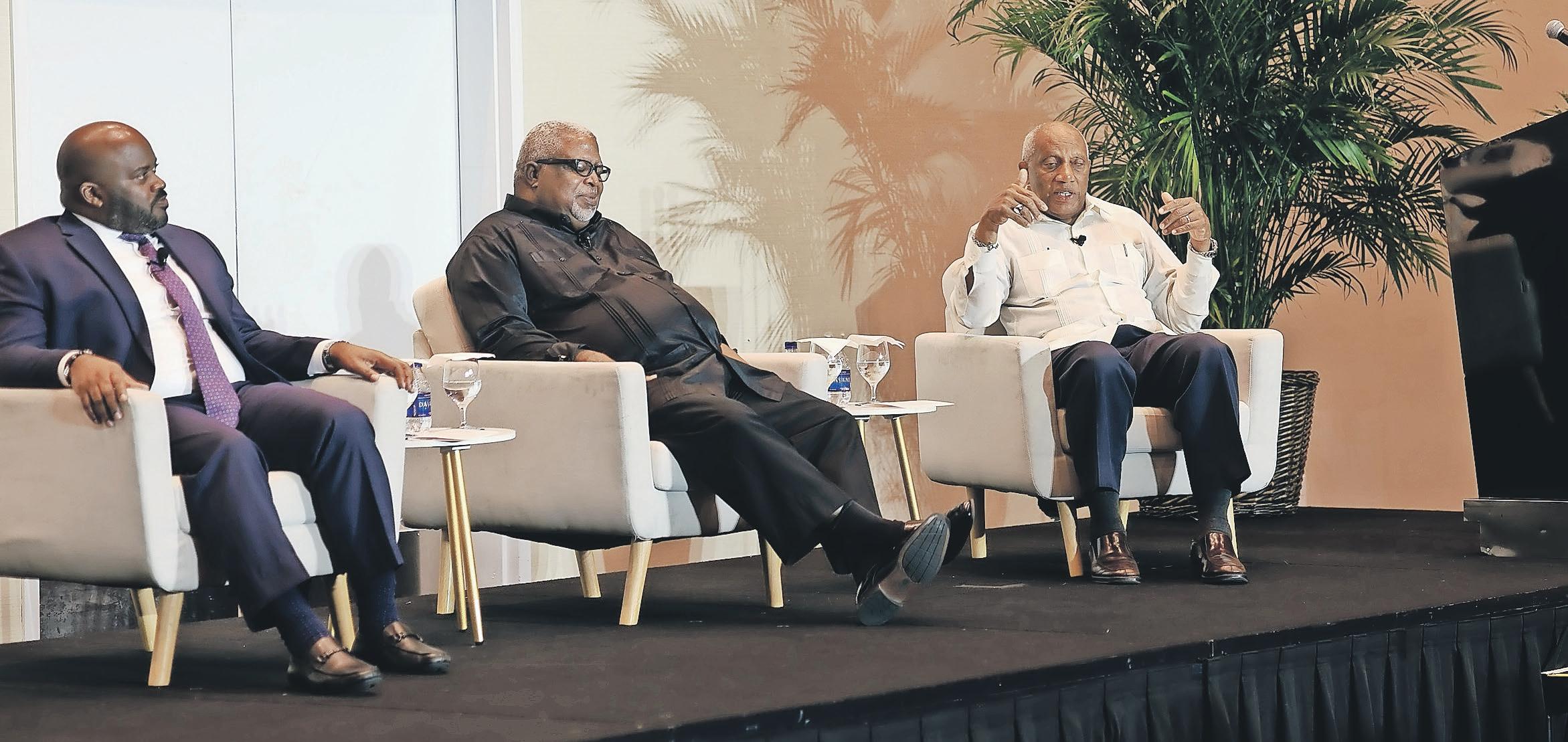
THE speed of justice in The Bahamas is anything but fast – this we know.
Take just one example of many – last month, a jury found Rodrigo Rolle guilty of the murder of an elderly American woman during a home invasion in Cat Island. This is 2024, the murder took place in 2017.
Seven years for the case to wind its way through the system to the point where at last we can say this person is guilty of this crime.
That sluggish progress is far from uncommon –so when we hear of terms such as swift justice being bandied about, we must contrast it with what is actually taking place in many circumstances.
Now, let us consider again that seven-year crawl to justice in the case above. That, of course, takes the case through more than one administration – so this is an issue that is not just a PLP or FNM problem, but one that endures through multiple terms of office.
Some of that is down to resources – more courts, more judges, more forensic resources, and so on. But not all of it.
There have been suggestions such as night courts, while even the Prime Minister has lamented how murder cases used to be much shorter back when he was working in the courts.
There is, of course, a balance in some of the actions that needs to be struck based upon people’s human and constitutional rights.
Police Commissioner Clayton Fernander has protested a number of times about people being released on bail, saying earlier this year for example about those released within “two or three months” that “something is definitely wrong with that”. He went on to say: “The law says within two to three years if the matter doesn’t come up in a week within that period, then he or she should be entitled to be reviewed for bail, but two to three months? That is something we really have to look at.”
The law does not say that you can lock someone up who is not yet guilty of a crime for two to three years, it is no surprise to note – and it does suggest
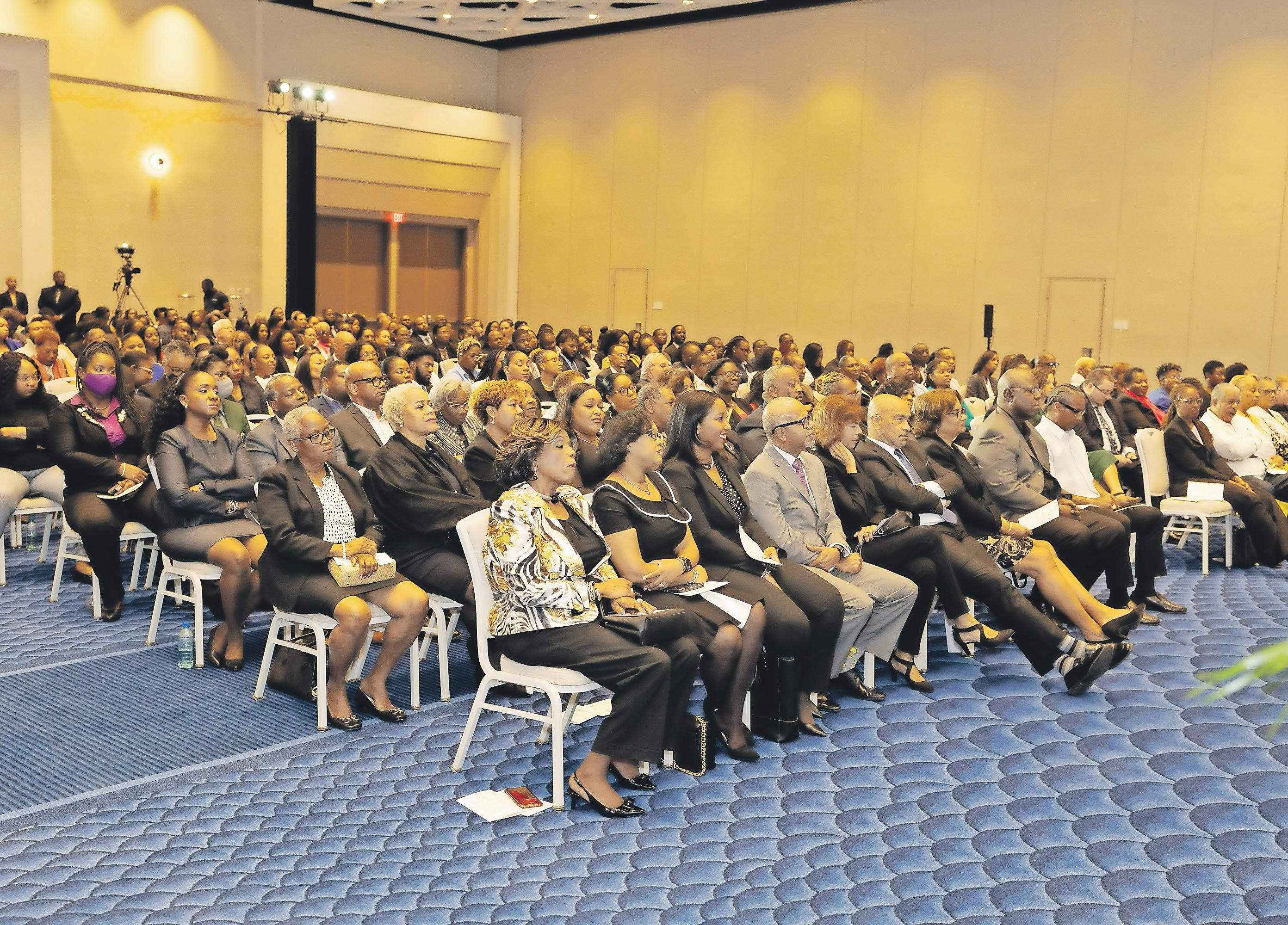
something of an overstep against the rights of the person.
Last week, in an illuminating discussion on a range of subjects by some of the top legal minds in the country at the Eugene Dupuch Distinguished Lecture series, another suggestion was put forward – a review of whether jury trials should be reduced or eliminated.
Court of Appeal president Sir Michael Barnett said: “Suppose you have a complex fraud case. A jury of seven persons of humble origins may not be able to fully grasp the complications of a fraud case involving commercial fraud, etc. I’m not sure that’s the best way of adjudicating that kind of dispute. “We do need to take a clinical view as to whether or not there are ways in which we can, in fact, reform the criminal justice system and reduce, if not eliminate, the number of trials by jurors and the risk
involving that.” Former Justice Sir Burton Hall also suggested that juries should have to give reasons for their verdict – just as a magistrate would, noting that the appeal court may be challenged in addressing the outcome because if juries do not give reasons for a verdict, what does the court base its appeal decision on?
Meanwhile, former Chief Justice Sir Brian Moree suggested a “halfway measure” where someone is given the right to elect a trial by jury or a trial by judge.
The current Chief Justice, Sir Ian Winder, said the trial process would move much quicker if jury trials were no more, saying “it’s like pulling teeth” to get jurors to serve. There is, of course, a constitutional problem to all of this.
Section 20 of the constitution gives people the right to “a fair hearing within a reasonable time by an
independent and impartial court established by law”.
Section 20:2 (a) speaks to the fact that a person charged “shall be presumed to be innocent until he is proved or has pleaded guilty” – so the long-term locking-up of people without bail is locking up those presumed innocent.
And 20:2 (g) means an accused person shall “when charged on information in the Supreme Court, have the right to trial by jury”.
That means that in order to do away with someone’s right to a trial by jury, there would have to be constitutional change – and one only needs look at recent referendums to see the chances of success there.
Sir Brian’s suggestion of a halfway house may well not breach that, however – giving a choice to someone does not take away their right, but gives them an option. He suggests this works well in Trinidad, but it would be interesting to
dive under the hood of that process to see exactly what kinds of cases progress in that fashion, and the overall impact on the progress of cases. Getting a jury empanelled can indeed be a challenge – but it is not the lack of a jury that has cases dragging on for seven, eight, nine years or more. That is the last hurdle in the slow race. A recent inquest, for example, saw some factors that will be familiar to the courts, with police documentation being slow or incomplete, and a number of cases see absent lawyers or officers forcing another delay.
Then there is a bigger question. We underestimate our democratic pillars at our peril. We talk of the presence of corruption in our society, but removing safeguards such as jury trials is a move we should make with great care. A glance across at Haiti shows
how quickly public institutions can fall apart – with such a barrier as trial by jury removed, what would stop a future administration from trying to find ways to stack the judiciary with favourable judges who might not hold government members to account in the same way a jury might?
We have already seen concerns over whether powerful figures hold such sway that they may or may not get charged at all, would being able to opt out of a jury trial help to hold such individuals to account, or would people fear it might be another barrier to a successful prosecution?
Despite all this, it is a useful discussion to have –and the legal leaders at last week’s event were reasoned and wise in their counsel. How do we ensure the best outcome, while still retaining the protections not only in our constitution but against risks of the future? It is a delicate path to walk.

FIVE out of the six biggest US airlines have raised their checked bag fees since January 2024. Take American Airlines. In 2023, it cost US$30 to check a standard bag in with the airline; today, as of
March 2024, it costs $40 at a US airport – a whopping 33 percent increase. As a business schoolprofessor who studies travel, I’m often asked why airlines alienate their customers with baggage fees instead of bundling all charges together. There aremany
reasons, but an important, often overlooked cause is buried in the US tax code.
Airlines pay the federal government 7.5% of the

ticket price when flying people domestically, alongside other fees. The airlines dislike these charges, with their trade association arguing that they boost the cost to the consumer of a typical air ticket by around one-fifth.
However, the US Code of Federal Regulations specifically excludes baggage from the 7.5 percent transportation tax as long as “the charge is separable from the payment for the transportation of a person and is shown in the exact amount”.
This means if an airline charges a combined $300 to fly you and a bag round-trip within the US, it owes $22.50 in tax. If the airline charges $220 to fly you plus separately charges $40 each way for the bag, then your total cost is the same — but the airline only owes the government $16.50 in taxes. Splitting out baggage charges saves the airline $6.
‘When the full data is in for 2023, total bag fees will likely top $7 billion, which is about $9 for the average domestic passenger. By splitting out the cost of bags, airlines avoided paying about half a billion dollars in taxes just last year.’
higher. Airlines collected over 40 times more money in bag fees last year than they did in 2002. When the full data is in for 2023, total bag fees will likely top $7 billion, which is about $9 for the average domestic passenger. By splitting out the cost of bags, airlines avoided paying about half a billion dollars in taxes just last year. In the two decades since 2002, flyers paid a total of about $70 billion in bag fees. This means separately charging for bags saved airlines about $5 billion in taxes.
to be more careful with bags, since customers who pay more expect better service? To find out, I checked with the Bureau of Transportation Statistics, which has been tracking lost luggage for decades.
For many years, it calculated the number of mishandled-baggage reports per thousand airline passengers. The government’s data showed mishandled bags peaked in 2007 with about seven reports of lost or damaged luggage for every thousand passengers. That means you could expect your luggage to go on a different trip than the one you are taking about once every 140 or so flights. By 2018, that estimate had fallen to once every 350 flights.
Now $6 might not seem like much, but it can add up. Last year, passengers took more than 800 million trips on major airlines. Even if only a fraction of them check their bags, that means large savings for the industry.
How large? The government has tracked revenue from bag fees for decades. In 2002, airlines charged passengers a total of $180 million to check bags, which worked out to around 33 cents per passenger.
Today, as any flyer can attest, bag fees are a lot
It seems clear to me that tax savings are one driver of the unbundling of baggage fees because of a quirk in the law. The US government doesn’t apply the 7.5 percent tax to international flights that go more than 225 miles beyond the nation’s borders. Instead, there are fixed international departure and arrival taxes. This is why major airlines charge $35 to $40 for bags if you’re flying domestically, but don’t charge a bag fee when you’re flying to Europe or Asia.
This system raises an interesting question: Do baggage fees force airlines
In 2019, the government changed how it tracks mishandled bags, calculating figures based on the total number of bags checked, rather than the total number of passengers. The new data show about six bags per thousand checked get lost or damaged, which is less than 1% of checked bags. Unfortunately, the data doesn’t show improvement since 2019.
Is there anything that you can do about higher bag fees? Complaining to politicians probably won’t help.
In 2010, two senators tried to ban bag fees, and their bill went nowhere.
Given that congressional action failed, there’s a simple way to avoid higher bag fees: travel light and don’t check any luggage. It may sound tough not to have all your belongings when traveling, but it might be the best option as bag fees take off.
• Originally published on www.theconversation.com.
THERE are 20 main arteries intricately distributed throughout the human body. Together, with veins, they converge to form a branched labyrinth of blood vessels which function to transport blood and nutrients to and away from the heart. To a discerning eye, these blood vessels closely resemble the tortuous pathway adopted by the roots of trees. And like such roots, optimal functioning of this complex, awe-inspiring transhipment highway is necessary for life to be sustained.
The abdominal aorta, for example, runs from the diaphragm to immediately above the pelvis at which point it branches into five more arteries. These arteries then go on to supply oxygenated blood and nutrients to the lower spinal cord, legs and various organs in the abdomen and pelvis. When too much pressure builds up within the arteries, the weakened portion of the arterial wall begins to bulge creating an aneurysm which, in the event of rupture, can be fatal.
All that information is not merely meant to be academic. It is the basis for understanding the story of a mother who rose to the highest levels of success in hospital administration in the US and the helplessness and pain she felt as she faced her own daughter’s health crisis.
Last week, I shared some of Cookie’s incredible life story. Living in New York during the 1940’s she faced the kind of discrimination which would never be tolerated in today’s world, stricken from university admittance despite excellent grades until she submitted an application without her photo. As an adult, the discrimination became more glaring, but driven by the work ethic and success of her mother and aunt, Cookie powered through. She became a nurse and eventually an esteemed hospital administrator. But, in the process, she almost lost custody of her daughter, Destiny, whom she loves dearly.
Even with the dissolution of her marriage after 12 years, Cookie fought hard to retain custody of Destiny, balancing life as her own career continued to flourish. But on May 12, 2022, Cookie (now retired and caring for her 99-year-old mother) faced her greatest trial. Destiny woke up with constipation and abdominal cramps so severe she couldn’t go to work and by that evening her life hung in the balance. She was rushed into surgery and Cookie arriving at the hospital to be with her daughter is where we resume their story.
Cookie’s head was spinning. Every one around her was moving quickly but she couldn’t seem to catch up. Her body and brain were in slow motion as she tried to process how her daughter was healthy yesterday but fighting for her life today.
Speaking with Destiny’s surgeon, she was able to discern that when Destiny arrived at the hospital, she collapsed. They saw her clutching her stomach and quickly scanned her abdominal area which revealed an abdominal aortic pseudoaneurysm (pseudo meaning the artery had been previously injured, possibly from a childhood injury or during a hysterectomy or lap band procedure performed several years prior). A catheter was quickly inserted into the pseudoaneurysm intraoperatively. In standard fashion, the catheter was packed with coils to promote blood clotting and prevent it from rupturing. Destiny, already

intubated using a nasogastric (NG) tube, was placed in the surgical intensive care unit (SICU).
After two days she was transported to interventional radiology for medical imaging so surgeons could better visualise her repair but while there, she coded. One of the five arteries that branches off the abdominal aorta had ruptured. The coiling procedure didn’t work and she had severe internal bleeding so a grafting procedure was performed. This type of rupture is extremely rare and is associated with very high mortality rates. Had she not been in the radiology operating room already, she would not have survived.
‘Time is rather peculiar. There are days when hours feel like seconds and others where it feels as if time has been suspended. The feeling of being in slow motion while the world around you moves in hyperspeed is the epitome of feeling helpless.’
Unconscious, Destiny went into acute respiratory failure. She was placed on a ventilator to help her breathe. Her liver began to fail because blood clots from mesenteric, splenic and portal vein thrombosis were clogging her liver and it was failing rapidly. At that point, the hospital was no longer capable of helping her. She had to be transferred to another hospital for a liver transplant. The clock was ticking, every minute counted.
Within hours, Mount Sinai Hospital in New York, where I completed my surgical residency, accepted her case and she was airambulanced, arriving the next morning. The transfer typically takes weeks, but her surgeon phoned his colleague at Mount Sinai and expedited the process. Cookie acknowledges that throughout this ordeal, angels helped them through every step and crisis.
Doctors at Mount Sinai suspected that Destiny would not survive a liver transplant so on May 20, eight days after the ordeal started, presenting as intense abdominal pain, Destiny underwent a Transjugular Intrahepatic Portosystemic Shunt (TIPS) to create new connections between blood vessels in her liver. Three days later, she began to respond to external stimuli and eventually regained consciousness. By the 25th the ventilator was removed and she was placed on oxygen via a nasal canula. CT scans revealed that she was still bleeding internally, blood clots kept clogging her shunt and she developed small bowel ischemia. The following day she underwent a revisional TIPS procedure.
Four days later, Destiny’s oxygen levels had improved to a point where the nasal tube could be removed. On May 30, she was transported from the SICU down to a specialised unit. It was a cautiously happy day for Cookie and one she prayed desperately for but the ordeal was far from over. The reduced blood flow to her kidneys caused renal insufficiency and blood was being expelled in her urine in such large quantities that she required multiple blood transfusions. She also developed excess fluid in her lungs that had to be drained at bedside via an intrapleural procedure and the use of a chest tube that was removed after one week.
Cookie recalls the deep fear and emptiness she felt when she looked at her daughter and her entire
body was so swollen that she was almost unrecognisable. The massive amount of edema caused Destiny’s face, stomach and extremities to double in size. Doctors treated her swelling with high-doses of diuretics which eventually helped to the point that she was able to start ambulating with assistance. Her significant muscle loss left her weak and emaciated which was to be addressed with prolonged physical and occupational therapy. Destiny was discharged to a short-term rehab facility on July 11th after having spent almost two months in
hospital. She only spent two weeks in rehab, however, because her insurance company refused to pay for the six weeks that her surgeons recommended.
Today, Destiny is able to walk with the use of a walker. Prior to her health issues, she worked in retail but she now works full time at a doctor’s office where she is surrounded by doctors and nurses, a relief to Cookie who always worries about the daughter she fought so hard to keep. The ordeal has taken a tremendous toll on Destiny’s mental health but through it all, she is grateful to be alive.
By DR KENNETH D KEMPCookie and Destiny’s take-home message to readers is that you cannot take life for granted because it can change drastically at any given moment. Destiny had high blood pressure and she regrets not being more vigilant about keeping it under control. They both feel that the only way they got through this ordeal was through a community of prayer from friends and family. They are incredibly grateful and feel that access to the right medical care is essential during a health crisis.
Time is rather peculiar. There are days when hours feel like seconds and others
where it feels as if time has been suspended. The feeling of being in slow motion while the world around you moves in hyper-speed is the epitome of feeling helpless. But feeling helpless is counter-intuitive for a mother, especially one like Cookie who teaches us all to never give up having spent her entire life as a trail-blazer forging her own path and lighting one for the future generations of young women of color who now succeed her. This is The KDK Report.
• Nicknamed ‘The Prince of Podiatry’, Dr Kenneth D Kemp is the founder and medical director of Bahamas Foot and Ankle located in Caves Village, Western New Providence. He served as the deputy chairman for the Health Council for five years and he currently sits on the board of directors for the Princess Margaret Hospital Foundation in his role as co-vice-chairman.

RICARDO Clarke, best known as a radio personality, gospel singer and motivational speaker - joined forces with Bahamasair in an initiative aimed at boosting staff morale and performance. Through his OCCUPY Mentorship programme over the years, Ricardo has aimed to shape character, teach discipline, foster business acumen and promote health within the country’s youth. Core areas of the program include education, vocation/trade,
entrepreneurship, faith, philanthropy, health, financial literacy, and etiquette. Taking a different approach to the Bahamasair partnership, Ricardo said he created a ten-week series of groundbreaking podcast episodes under the name “Motivational Mondays” to inspire and empower employees like never before. He said: “I believe this is the first time something like this has happened in the local space relative to the work environment. I considered it an honour to be invited as a part of this historic and transformative initiative to assist in
the uplifting and wellbeing of the staff. I was very impressed that the leadership there, managing director Tracy Cooper, and his team recognised the importance of fostering a positive work environment for its team members.”
He added: “The topics were tailored to resonate with the challenges and aspirations of Bahamasair’s workforce. From strategies for personal growth and overcoming obstacles, to techniques for enhancing teamwork, conflict resolution and customer service, each episode is designed to uplift and motivate employees at all levels of
the organisation. Since the launch of the podcast series, feedback from Bahamasair staff has been overwhelmingly positive. The feedback is incredibly positive. Initially, I didn’t know how it would be received because it was so novel in the approach. I must say for the last few weeks I’ve been meeting members of the staff who appreciate the initiative.
“Just yesterday, Wendy, who is a flight attendant at Bahamasair, and the crew 415, on my recent travel shared on its impact, and I am grateful.”
He said employees described the podcast
as transformative, citing noticeable improvements in morale and performance across various departments. He said: “It’s been an honour to work with Bahamasair in creating these podcasts. Our goal is to inspire and empower every member of the team, and I am delighted to see the positive impact it’s having on their lives and work. Creating podcasts with Bahamasair aligns perfectly with my organisation, Occupy’s, mission to empower individuals through life skills. By delivering motivational content directly to employees,
we’re fostering personal growth, enhancing communication skills, and instilling a sense of purpose. These podcasts serve as a platform for continuous learning and inspiration, embodying Occupy’s commitment to providing accessible resources for self-improvement.”
He believes the success of this partnership serves as a model for other companies seeking innovative ways to motivate and empower their employees.
For more information, email occupymentorshipprogram@gmail.com or visit www.occupymentorshipprogram.com.
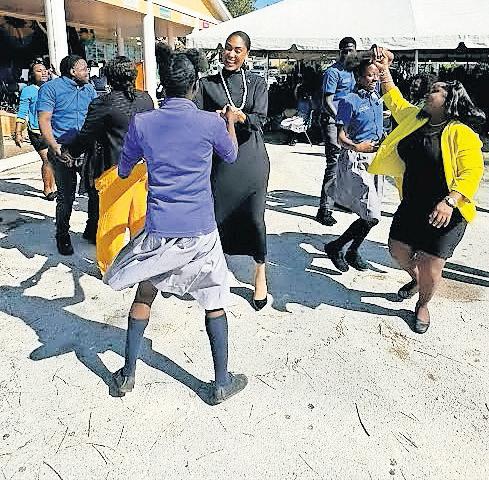
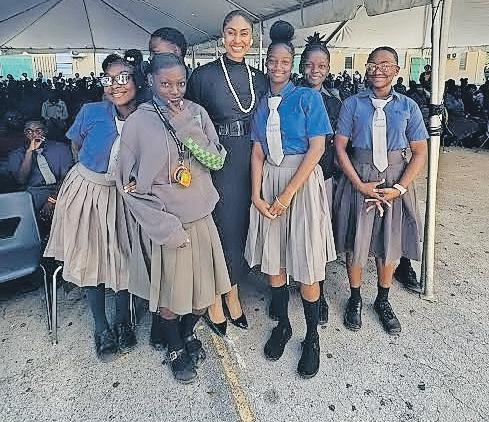

WITH young people making up more than 60 percent of the population of people in the Commonwealth, Bahamas Ambassador to the Caribbean Community Leslia Miller-Brice encouraged children at CC Sweeting to know their worth and to make a difference that could impact the world. She spoke to students at the school on Commonwealth Day, on Monday, March 11. She said: “More than 60 percent of the Commonwealth is made up of young people - ages 29 and
under. So you are indeed the future and it is you who we are working so hard for today.
“Your teachers, and the administrators of this school are here to help you. Utilise your resources, believe in yourself no matter what. You will see opportunities come your way that you never thought possible!”
After addressing the students, Miller-Brice joined games of ring play with them, and encouraged those she met to stop at nothing to achieve their goals - not only for their nation, but the world.
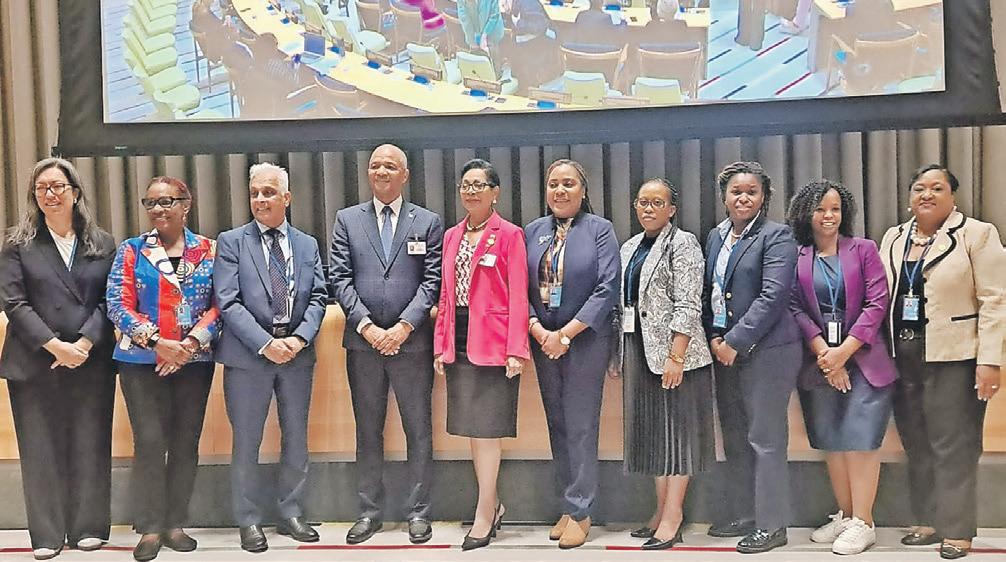
FOLLOWING the 13th Commonwealth Women’s Affairs Ministers Meeting (13WAMM) hosted in The Bahamas last year, Minister of Social Services, Information and Broadcasting Myles Laroda told the United Nations 68th Session on the Commission on the Status of Women (CSW) that through legislation, financing, and international activism, The Bahamas is working to champion the rights of women and girls everywhere. CSW is the United Nations’ largest annual gathering on gender equality and women’s empowerment. taking place from March 11-22 at the UN Headquarters in New York.
Mr Laroda led a delegation of government officials and NGO representatives at the meeting. He said the Bahamas’ role in the global advancement of women was solidified by 13WAMM in August last year, the same month the government passed the Protection Against Violence Act “to provide for a national strategy to prevent and respond to the occurrence of violence and to protect victims of violence”.
Mr Laroda encouraged Commonwealth counterparts to take a unified approach to ensure that the Roadmap for women, signed in The Bahamas during 13WAMM, is effective in impacting gender and climate change; the economic empowerment of women, women in leadership, violence against women and girls, and inclusion of persons with disabilities.
Mr Laroda addressed the Commonwealth Annual Consultation with National Women’s Machineries/ Senior Officials, Commonwealth Roadmap for women’s affairs. He hailed the Roadmap as critical to women’s advancement, and the work of his predecessor, Obediah Wilchcombe, as chair of 13WAMM.
Women’s economic empowerment, Minister Laroda said, is vital to women’s advancement. As such, he said the ministry’s Department of Gender and Family Affairs (DGFA) partnered with The Bahamas Development Bank (BDB) to conduct a workshop for women entrepreneurs on International Women’s Day, on March 8.
Mr Laroda also spoke at CSW68’s Ministerial Roundtable, saying: “The Government of The Bahamas has three principal strategic initiatives, among others, in its commitment to advancing equitable financial empowerment of women and girls,” adding that two of the three are led by women. The initiatives are: gender mainstreaming of the Sustainable Development Goals (SDGs); increase training and capacity of women in STEM and non-traditional technical subjects; and the provision of digital social services.
Mr Laroda also spoke at the side event “Gender Equality and Climate Change – Commonwealth perspectives”, an event cohosted by The Bahamas and the Commonwealth.
Two Bahamian women scientists spoke on the panel - Dr Rhianna Neely, director of the Bahamas Department of Environmental Planning and Protection; and Dr Adele Thomas, vice chair of Working Group II, Intergovernmental Panel on. Climate Change. Minister Laroda said in championing the rights of women, gaps that exist must be tracked, including: lack of equal pay for equal work; gender-based violence including sexual violence; harassment; underrepresentation in the decision-making arena;, and decreased access to economic opportunities and gender-responsive financing. Women, he said, comprise more than 50 percent of the Bahamian population, and are one of the country’s greatest resources.
Associated Press
AS HAITI once again spirals into chaos with another wave of gang violence, a number of government and aid agencies reported on Saturday that their facilities and aid supplies have been looted.
Gangs have raged through Haiti in recent weeks, attacking key institutions and shutting down the main international airport. The chaos has pushed many Haitians to the brink of famine and left many more in increasingly desperate conditions.
On Saturday, UNICEF said one of its containers containing “essential items for maternal, neonatal, and child survival, including resuscitators and related equipment” were looted in the capital of Port-au-Prince’s main port, which was breached by gangs last week.
“Looting of supplies that are essential for life saving support for children must end immediately and humanitarian access must remain safe,” Bruno Maes, UNICEF representative in Haiti, said in a statement.
The aid agency said the looting and overall violence has further cut some of the country’s most vulnerable from basic supplies, coming “at a critical moment when children need them the most.”
That same day, the Guatemala’s Foreign Ministry said that the offices of its honorary consul in Haiti was ransacked, but didn’t give any details of damage or thefts, nor did it say who was responsible.
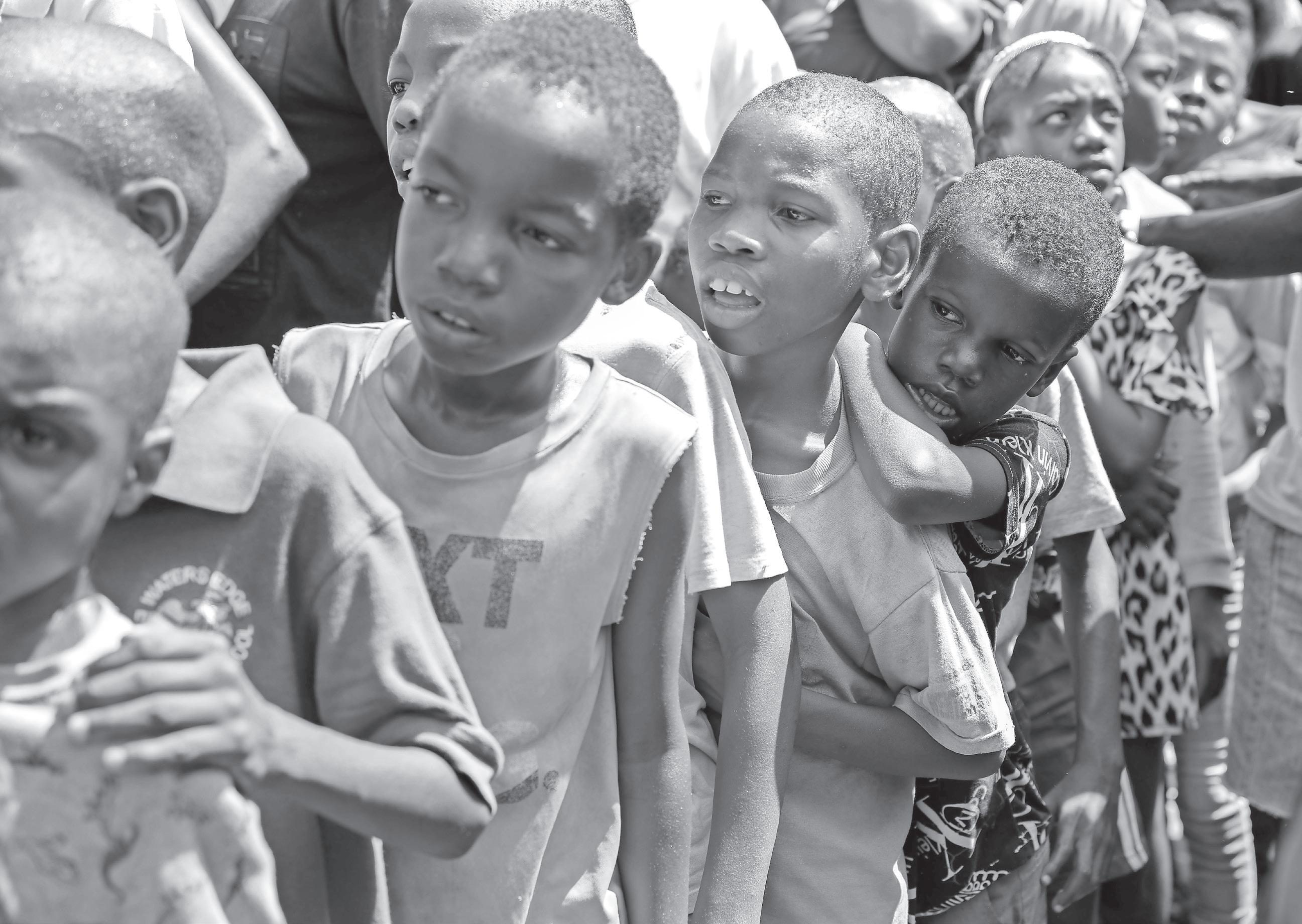
The ministry said only “paperwork and documentation of the last four or five years had been previously transferred” to the Guatemala Embassy for Haiti, which is located in the
neighbouring Dominican Republic. Chaos is nothing new to Haiti, but the recent upheaval has been particularly brutaL The violence has left Haiti’s government in a state of turmoil and

prompted Prime Minister Ariel Henry to pledge that he will resign, a key demand of the gangs.
The United States had flown in military forces to beef up security at the American Embassy and
seemingly quash speculation that senior US government officials might be leaving.
While Haiti’s main airport in Port-au-Prince remains closed following gang attacks, the US State Department said it would be offering limited
charter flights for American citizens from the less chaotic northern city of Cap-Haïtien. But it warned that US citizens should consider the flights “only if you think you can reach Cap-Haïtien airport safely”.
